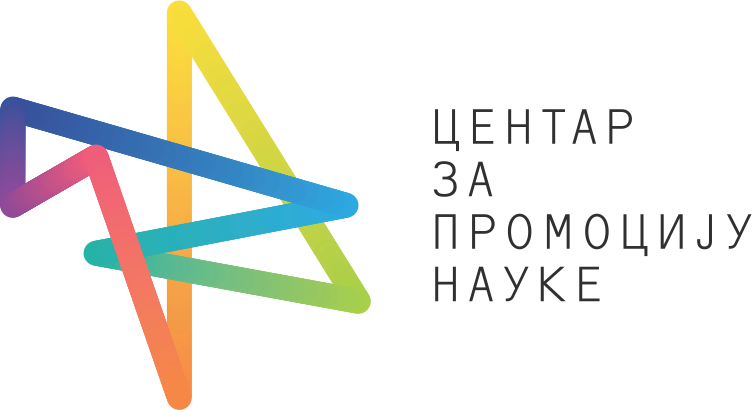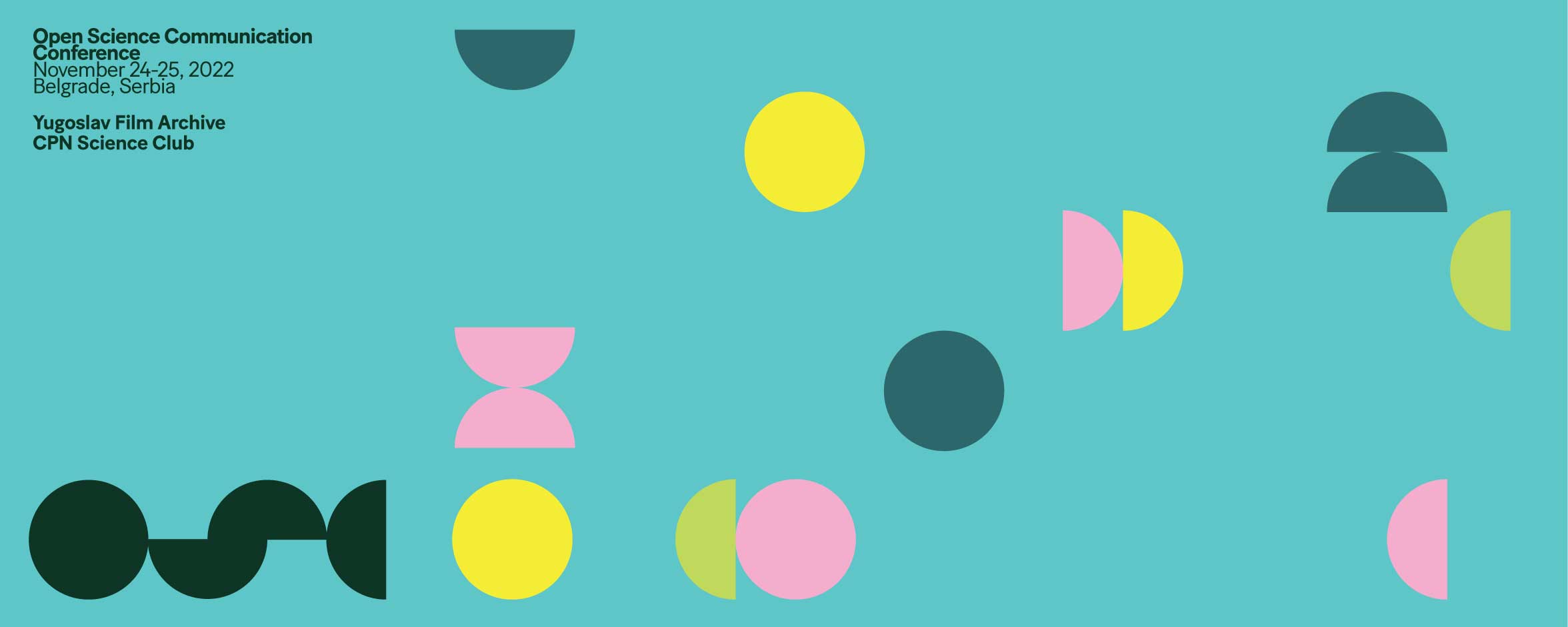
Open Science Communication Conference – OpenSciComm 2022
24-25. новембар 2022.
Југословенска Кинотека
Београд, Србија
Радни језик: енглески
У друштву заснованом на знању, грађани су у прилици да доносе одлуке захваљујући потребним и провереним информацијама које наука омогућава. Отворена наука и Научна комуникација доносе суштинске промене захваљујући демократизацији науке и свеприсутној дигитализацији, које смањују јаз између науке и друштва. Комуникација научних достигнућа и резултата је од изузетног значаја за пружање одговора које наука може да понуди грађанима, али и да оснажи младе и све друге слојеве друштва да научна и технолошка знања користе на жељени и критички начин.
Конференција OpenSciComm посвећена је разматрању делотворних и проверених пракси научне комуникације у различитим окружењима и на различите теме, омогућавајући размену идеја и приступа на међународном нивоу. Конференција ће допринети мисији Центра за промоцију науке да кроз драгоцен и инспиративан дијалог окупи научну заједницу у најширем смислу са циљем активног умрежавања и подизања јавног разумевања науке и технолошког напретка.
Научна комуникација се односи на академску дисциплину јавног представљања научних тема не само унутар научних кругова већ превасходно циљајући друге друштвене групе. Заснована је са циљем бољег разумевања науке и подизања научне писмености као неизоставног елемента савременог живота. Комуницирање науке ка различитим публикама и активан ангажман истраживача унутар свих сегмената друштва, укључујући и креаторе политика и доносиоце одлука, кључни су чиниоци овог процеса. Иако се научна комуникација, као академска дисциплина, изучава, истражује и предаје у великом делу света, она још није препозната у Републици Србији, нити у оквиру нашег високог образовања постоје студијски програми или практични курсеви и тренинзи.
Отворена наука је заснована на принципима отворености и транспарентности током целокупног процеса научних истраживања. Она негује и оснажује основне академске вредности, попут научног интегритета, сарадње и дељења знања, чинећи научна истраживања и њихову дисеминацију доступним свим слојевима друштва – и лаицима и професионалним истраживачима. Отворена наука је стога кључна за подизање поверења јавности у науку, али и као алат за мотивисање и укључивање јавности у сам процес научних истраживања. Као европска политика, први пут је иницирана 2016, и од тада је доживела бројне измене и унапређења. Република Србија је 2018. године усвојила Платформу за отворену науку.
Конференција OpenSciComm повезаће комплексне истраживачке концепте и теме са феноменима и процесима који су блиски јавности, попут климатских промена, вештачке интелигенције, напредних технологија. У фокусу је представљање савремених, иновативних и инспиративних пракси, размена идеја и приступа, и умрежавање на међународном нивоу.
Центар за промоцију науке је национална контакт тачка пројекта и мреже Scientix, која повезује локалне STEAM иницијативе са активностима на националном и међународном нивоу. Центар је такође одговоран за сарадњу с надлежним Министарством како би се унапредила позиција и перспективе STEAM образовања у оквиру националног образовног система. Заједно за 30 одабраних наставника – Scientix амбасадора у Србији, Центар редовно организује радионице, презентације и конференције, које представљају иновативне и савремене педагошке приступе и ресурсе. Највећи део програма другог дана конференције OpenSciComm реализује се као национална Scientix конференција.
У оквиру OpenSciComm-а, 23. новембра ће се одржати још једна конференција у Југословенској кинотеци. Наиме, два Х2020 пројекта RRI2SCALE и TeRRIFICA заједнички ће организовати своју завршну конференцију под називом „Примена принципа Одговорног иновација и истраживања (RRI) за паметне и климатски отпорне европске регије”. Догађај ће обухватити презентације оба пројекта, интерактивне сесије, округле столове отвореног типа, као и инспиративне разговоре о научним политикама и регионалном развоју. Учешће на конференцији је бесплатно али са ограниченим капацитетом. Информације о конференције се могу наћи овде, заједно са регистрационим формуларом.
Програм конференције
| Time | Auditorium Session & Speakers | 1st floor room Session & Speakers | Pop Up Science Club Session & Speakers |
|---|---|---|---|
| 9:00-10:00 | Registration | ||
| 10:00-10:30 | Opening ceremony Dr. Jelena Begović, Minister Ministry of Science, Technological Development and Innovation Dr. Aleksandar Jović, Assistant Minister Ministry of Education Dr. Marko Krstić, Acting Director Center for the Promotion of Science Hosted by Dr. Tanja Adnađević & Dobrivoje Lale Erić | ||
| 10:30-12:00 | OpenSciComm keynotesFollowing a brief outline of key tenets of science communication, this presentation looks at the distinction between the nature of ‘scientific knowledge’ and the nature ‘scientific inquiry’ as a site from which to further ‘open’ science, technology and medicine (STM). I suggest that communicating about science – in addition to communicating science itself – yields long-term dividends in managing public expectations and trust in STM by providing a necessary understanding of the conditions under which scientific claims earn credibility in the public sphere. Understanding these conditions is especially important in facilitating public opinion about matters involving controversy, uncertainty and risk. Vladimir Janković Rene von Schomberg Adriaan Eeckels Marko Krstić moderator: Tanja Adnađević | ||
| 12:00-13:30 | Lunch break | ||
| 13:30-14:30 | Open Science in the open worldOpen Science is based on the principle of openness and transparency in the whole research cycle. It fosters and reinforces core academic values, such as research integrity, cooperation and knowledge sharing, while making scientific research and its dissemination accessible to all levels of society, amateur or professional. Open Science is also key to increasing public trust in science and as a means to spark interest and foster the public’s participation in research activities. Invited speakers will showcase a variety of initiatives, knowledge and practices – from pioneering “Science Shop” model invented in eighties, through nationally valuable “Open Science Platform” and first faculty textbook based on the OS principles, to the integration of research results into regional innovation and policy agendas. Biljana Kosanović Siniša Marčić Dejan Pajić Norbert Steinhaus moderator: Ljiljana Rogač MIjatović | In Science We Trust Eugenia Covernton Aleksandar Bulajić Asimakis Talamagas Zoran Tomić moderator: Jelena Joksimović | Origami-mathematics, wonders between the folds in the classroom Miroslav Novta Secret of Masonic communication and more Krešimir Čanić |
| 14:45-15:45 | SciJournalism: Bridging the Gap Between Science and PeopleThe COVID era has made it crystal clear that the world needs a much better bond between scientific content and the general audience. (Remember the vaccines and Ivermectin saga?) Adequately communicating science so that everyone understands involves time and effort, especially if you are a ‘regular’ journalist. Science is usually communicated via ‘usual suspect’ mediums: TV, online and print. This panel will show how scientific content can also be distributed using one ‘old new’ medium – radio. In addition, we will showcase examples of a rather unusual but happy marriage between science and the PR sector, as a suitable way of building visibility of scientific content. Jelena Kalinić Dobrila Močević Dušan Pavlović Tiberius Puiu moderator: Ivana Nikolić | Art and Science: beyond communication Werner Jauk Mersid Ramičević Adrienn Újházi Kristijan Tkalec moderator: Bojan Kenig | DataArt IT Museum Alexey Pomigalov |
| 15:45-16:45 | Poster session (Coffee break) | Poster session (Coffee break) | Climateria Marija Nedeljković |
| 16:45-17:45 | What’s The DRAMA With Science CommunicationMain aim of this panel is to encourage STEM teachers, science communicators, researchers and artists to collaborate and to explore drama as a field of communicating science. Hopefully, this session will spark a dialogue about including methodologies from drama and theater into science communication and inspire evolvement of science and drama communities. Panel will raise questions such as where is storytelling positioned between science communication and drama, which are intersections of methodologies in scientific and drama research, what kind of participation in drama and science projects elevate what kind of processes, how to reflect and evaluate drama and science programs, how to position this field as participatory and critical contribution to the science communication… Tamara Nikolić Jovana Karaulić Ljubica Beljanski Ristić Claudia Aguirre moderator: Maja Maksimović | Open Science: Unlock your Research for multilayered audiences and resources Sílvia Simon Barbara Heinisch Katarzyna Świerk moderator: Marija Cvetinović | Communicating science through card games Boris Klobučar |
Evening programme ⎯ food, football and fascination
| Time | Auditorium | 1st floor room |
|---|---|---|
| 20:00-21:00 | Cyborgs at the Film Archive (Developing tools for the next generation of neuroscientists) Greg Gage | World Cup live Brazil – Serbia (first half) |
| 21:00-22:00 | Biodesign (Augmented lecture) Biljana Jović Ivan Lušičić Liik Iva Olujić Aleksa Nikolić Production: Interactive Arts Laboratory, FDA | World Cup live Brazil – Serbia (second half) |
| 22:00-23:00 | Yugoslav Music Archive DJ Coba |
| Time | Auditorium Session & Speakers | 1st floor room Session & Speakers | Pop Up Science Club Session & Speakers |
|---|---|---|---|
| 9:00-10:00 | Registration | ||
| 10:00-11:30 | OpenSciComm keynotes Mairead Hurley Bruno Maquart Ana Noronha moderator: Dobrivoje Lale Erić | ||
| 11:45-12:45 | New Opportunities for Adressing Societal Needs with Citizen Science Carla Perucca Iannitelli Kejt Dhrami Gefion Thuermer Chris Styles moderator: Elke Dall | A kaleidoscope of STEAM practices across Europe Roberto Vdović Menelaos Sotiriou Andreja Bačnik & Simona Slavič Kumer Miloš Đuričanin Dobrivoje Lale Erić moderator: Vanessa Mignan Jenkins | Magic and Games: Periodic Table, Quantum, Entropy, Women and Science… Sílvia Simon Rabasseda Early Childhood Environmental Education Milica Vukadin |
| 12:45-13:45 | Lunch break | ||
| 13:45-14:45 | Climate literacy for sustainable future community development Vladimir Đurđević Marta Terrado Joanna Gordon Casey Selvaggia Santi moderator: Marjana Brkić | Inspirational approaches to STEAM education Krešimir Čanić Zrinka Valetić & Robert Vdović Maja Nikolova Zorana Matićević & Biljana Mijailović Vedrana Mikulić Crnković & Bojan Crnković moderator: Danijela Vučićević | Science around us Anđela Kostić Minić Anka Ivanović Conić Olivera Ivanović Do plants and animals know physics? Milena Živković Neda Bogojević Preković |
| 15:00-16:00 | Living labs and open schooling in science education Claudia Aguirre Ivana Šeparović Jelena Joksimović moderator: Alix Thuillier | Citizen Science: guidelines, quality assessment strategies and expoitation pathways Dušan Mišević Katharina Kloppenborg Bojana Dinić Joanna Morawska moderator: Marija Cvetinović | 3D printing students’ company logo Zorana Matićević & Miroslava Nikolić |
| 16:00-17:00 | Poster session (Coffee break) | Poster session (Coffee break) | Meet Scientix Ambassadors! Scientix ambassadors from Serbia |
| 17:00-17:30 | Closing ceremony |
November 24
| Time | Title | Facilitators |
|---|---|---|
| 12:30-14:30 | Teaching SciComm: Lessons from the Field | Olga Dobrovidova Hosted by Katarina Stekić |
| 14:45-16:30 | TV camera – fight or flight? | Marko Košiček Petra Buljević Zdjelarević Hosted by Katarina Stekić |
| 16:45-18:45 | Scientific findings in the non-scientific public and vice versa: the scientists’ responsibility | Kaja Damnjanović Hosted by Katarina Stekić |
November 25
| Time | Title | Facilitators |
|---|---|---|
| 11:45-13:30 | Transversal skills in STEAM education | Tina Marković Barbara Pinculić Tomislav Rožić Hosted by Katarina Stekić |
| 13:45-15:30 | STEM F.D.: Fighting wildfires with STEM education | Eirini Chatzara Asimakis Talamagas Hosted by Katarina Stekić |
| 15:45-17:15 | Detective Investigation | Vesna Kostić Snežana Bogićević Jelena Mucić Zorana Matićević Hosted by Katarina Stekić |
| Time | Title and presenting authors |
|---|---|
| November 24 15:45-16:45 & November 25 16:00-17:00 | Unleashing the potential of newsable stories from citizen science initiatives derived open data Co-designing citizen science communication strategies to engage quadruple helix stakeholders – the NEWSERA CitSciComm Labs Joana Magalhaes & Carla Perucca Iannitelli Multidisciplinary approach to science communication Đorđe Vojnović & Maria M. Savanović Strengthening Climate – health literacy through education Marija Jevtić Science in and for Diplomacy: Harnessing Scientific Thinking and Communication to Improve International Relations and Collaboration Ljiljana Rogač Mijatović The Distinctive Characteristics of Bullshit and their Contribution to the Author’s Reliability Effect Sandra Ilić Environmental Science (Visual) Puns for Better Learning Outcome: Entrance Exam Book Illustration Aleksandra Kulić Mandić ENgagement and JOurnalism Innovation for Outstanding Open Science Communication Karinna Matozinhos |
Говорници по позиву
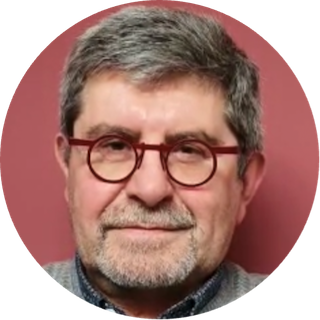
Adriaan Eeckels
(1960) is a historian, humanist and semiotician. Since his university years, he has been testing boundaries, also between art and science. As a thesis proposal, he investigated the epistemological properties of the narrative in historical research, by applying semiotics in historical research with a focus on the history of mentalities in Quattrocento Florence. Since 2016 he is leading the SciArt project of the Joint Research Center (JRC) of the European Commission.
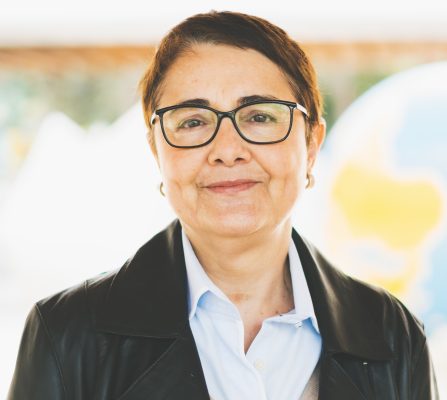
Ana Noronha
is the Executive Director of Ciência Viva, the Portuguese agency for scientific culture. She is in charge of initiatives about education and public awareness of science at national and international level, particularly on space science and ocean literacy. A physicist with a PhD on Non-Linear Dynamics, she coordinates the ESERO Portugal, European space resource office established with the ESA at Ciência Viva, Co-Chairs the ECSITE Space Group and Chairs the ESA Advisory Committee on Education.
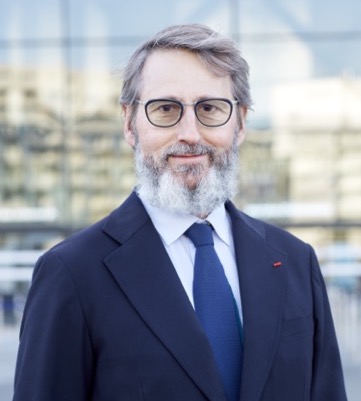
Bruno Maquart
is the chairman and CEO of the Universcience, the first French public institution for the communication of scientific and technical culture, comprising the Cité des sciences et de l’industrie and the Palais de la découverte, both in Paris. He’s also the current president of the ECSITE, the leading European network of science centres and museums. Bruno graduated from the National Agronomy Institute of Paris-Grignon, followed by the Ecole Nationale d’Administration. For almost 30 years, his career has focused on two areas of public activity – culture and social affairs, being the Managing director of the Centre Georges Pompidou in Paris and the Louvre Abu Dhabi project in the United Arab Emirates.
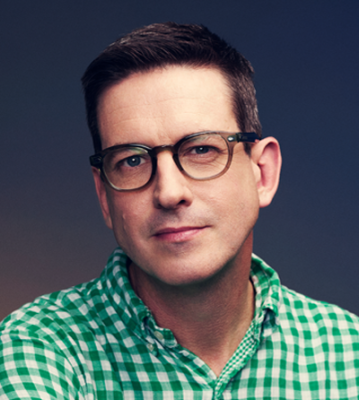
Greg Gage
is the co-founder and CEO of Ann Arbor-based Backyard Brains. He is a neuroscientist and biomedical engineer who loves tinkering with all things electric. Currently, Greg is developing new tools, curricula, and experiments that allow the general public to participate, hands-on, in neuroscience discovery. He is a senior fellow at TED and has given 10 TED talks. He’s an award-winning investigator at the National Institute of Health, and he was recognized by Barack Obama for being a Champion of Change for his commitment to citizen science.
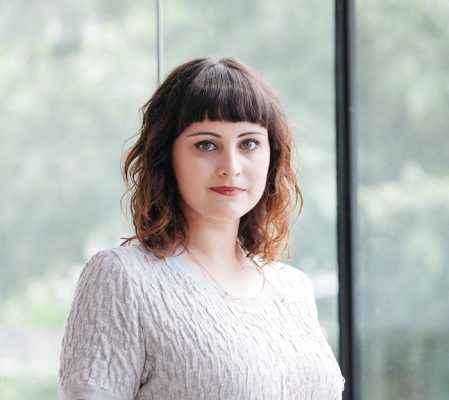
Mairéad Hurley
is an Assistant Professor in Science Education at the School of Education, Trinity College Dublin. Her research interests lie at the intersection of science education, communication and public engagement, with a particular focus on non-formal learning environments that connect the STEM disciplines with the arts. She was the Principal Investigator of the European Commission-funded project SySTEM 2020 which examined science learning outside the classroom in 19 countries across Europe (2018-2021). She holds a PhD in astronomy and has experience as a teacher of secondary school science and mathematics.
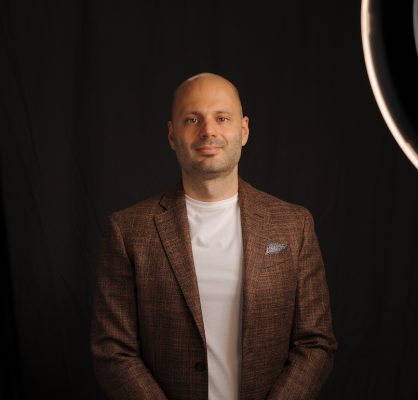
Marko Krstić
earned his PhD degree at the School of Electrical Engineering, University of Belgrade
in 2016. His fields of interest include quantum electronics and photonics. Since 2009 he has been employed at the School of Electrical Engineering, Department of Microelectronics and Technical Physics, where he is currently in the process of gaining Associate Professor position. Marko published 25 scientific papers in SCI journals, and took part in several scientific research projects. He received several awards for the best scientific paper published in a SCI journal. From 2018 he has been serving as the acting director of the Center for the promotion of science.
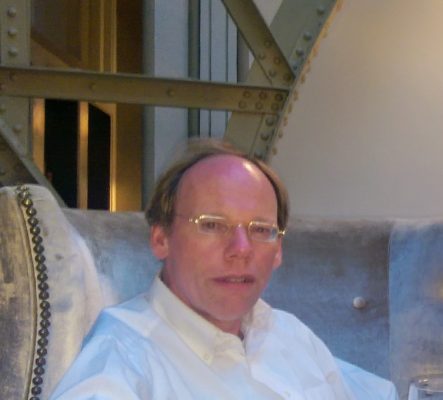
René von Schomberg
was at the European Commission from 1998 – 2021. He is currently a senior research fellow at RWTH university of Aachen and also a Guest Professor at the Technical University of Darmstadt. He is the first editor of the most comprehensive book on responsible innovation to date: The International Handbook on Responsible Innovation. A global resource (Edward Elgar, 2019) He runs a blog with open access publications:.https://renevonschomberg.wordpress.com
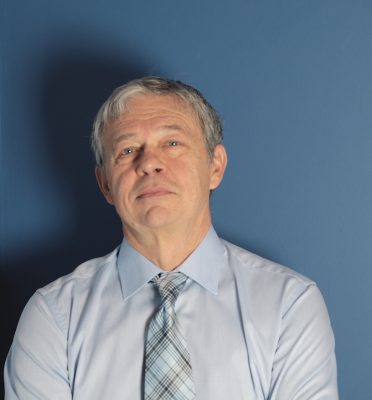
Vladimir Janković
specializes in the history of modern science and atmospheric humanities. He has published extensively in the history and social studies of meteorology, climate change, environmental medicine, and urban climate design. His has been funded by the Wellcome Trust, ESRC, AHRC, NSF and the Brazilian Ministry of Science. He served as President of the International Commission on History of Meteorology and is currently the Chair of History Group of the Royal Meteorological Society. His research has been communicated in the media including New York Times, Spotify and Discovery Channel.
Говорници

Adrienn Újházi
completed her BA in 2018 and her MA in 2020 at the Academy of Arts in Novi Sad, Department of painting. As of 2021, she is an independent artist. Adrienn also received several scholarships and awards, actively participates in exhibitions, projects, and collaborations, and her work has been shown at numerous museums and festivals. She is a member of Šok ZaDruga in Novi Sad, ReAktor Citizens’ Association, and Union of Associations of Fine Artists of Vojvodina. Her latest project was BIOFABRIKA/BIOFACTORY, supported by the European Capital of Culture Novi Sad 2022.
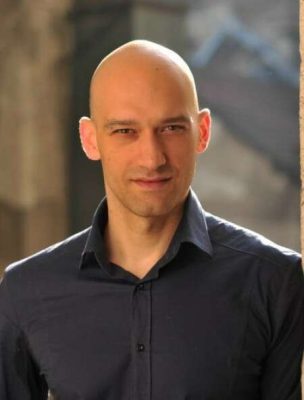
Aleksandar Bulajić
is an assistant professor at the Chair of Andragogy at the University of Belgrade and a research scientist and a lecturer at the University of Kaiserslautern’s Center for Cognitive Science. In the last few years, he was focused on researching the problems of cognitive aspects of adult (i)lliteracy, but his work also encompasses topics of working memory, cognitive load theory, and global and the local aspects of processing in visual perception. His research efforts aim to achieve an interdisciplinary approach to the field of applied cognition in adult education and learning. Aleksandar is a member of the editorial board of the Andragogical Studies Journal, associate and member of several national and foreign non-governmental and research associations (AES, ESREA). He participated in several national and international research academic projects.
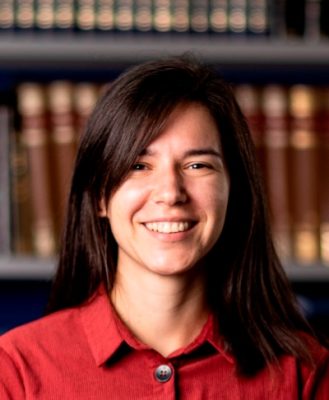
Aleksandra Kulić Mandić
Research Assistant at the Faculty of Sciences, University of Novi Sad, Serbia. Works at the Chair of Chemical Technology and Environmental Science as a member of the Wastewater treatment group. The first attempt in science communication through illustrations was for “A Collection of Tasks for the Environmental Protection Entrance Exam” book. Illustrations were prepared as visual add-on and at the OpenSciComm conference will be presented a poster summary.
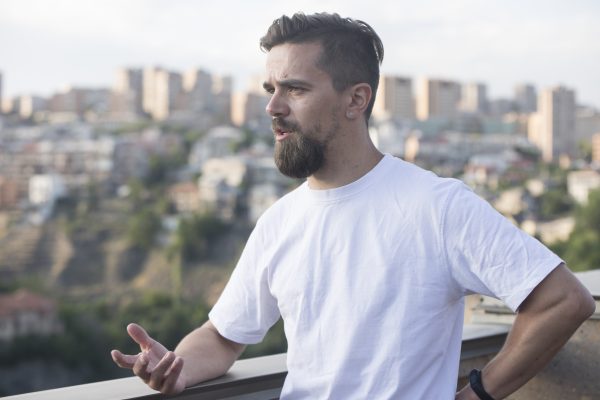
Alexey Pomigalov
had studied history of the XIXth century and worked in the conventional museums and exhibition projects (State Hermitage and Fabergé Museum).
In 2018 his interest in IT and science history shaped out and he started curating the IT Museum DataArt project. It had started with interest in the local ex-Soviet history of computing technologies but evolved into the exploration of the Eastern and Central Europe engineering culture as a social phenomenon.
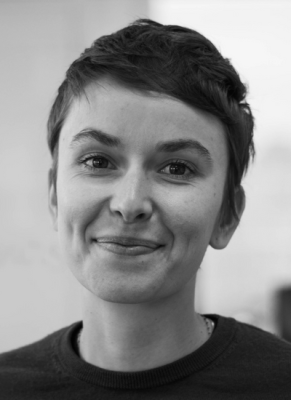
Alix Thuillier
MA in Science communication. She worked as Communications Officer and Science Engagement Project Manager for various education and research institutions in France and Israel for 6 years. In 2020, she joined Ecsite – the European network of science centres and museums – where she supports collaborative EU-funded projects in science education and societal engagement in their implementation, communication and dissemination activities.
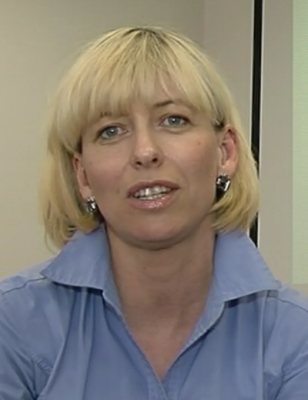
Andreja Bačnik
is a senior consultant for chemistry at National Education Institute Slovenia (NEIS) and coordinator of STEM group. She is working on active teaching and learning approaches in chemistry (science) education (IBL, ; coordination and performing of different types of in service training for science teachers; preparing and implementing new curriculum etc. She was the leader of the development group for scientific literacy in the national project NA-MA POTI, an Slovenian expert in Thematic Working Group on Mathematics, Science and Technology (MST) Education and PLA, Education and Training 2020 by European Commission and she was involved in international projects as Scientix 2 and 3, ATS STEM (Assessment of transversal skills) etc.
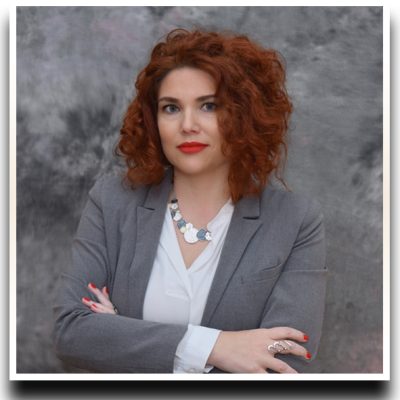
Anđela Kostić Minić
is an EFL teacher and a PhD student in philology currently employed in CSU (Competence Improvement Centre) in Leskovac, Serbia in the position of managing director. She has twenty years of working experience with students of various age and knowledge levels (from kindergarten to university students). As a member of CSU team she participates in providing support to trainers in creating and conducting programmes for continued professional development of teachers as well as in numerous activities of Science club in Leskovac.
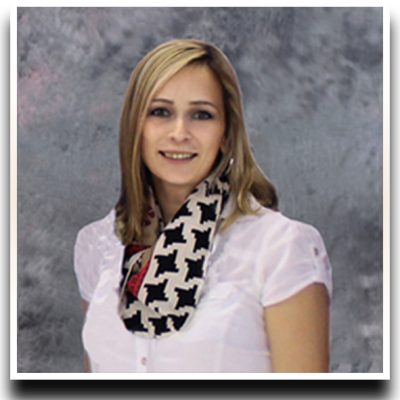
Anka Ivanović Conić
is master of education policies and she has been working in Competence Improvement Center in Leskovac for 12 years. Position of Associate in The Center has given her many opportunities. Working as a coordinator of many projects realized in The Center she has the opportunity to participate in preparing, planing, realizing, evaluating and reporting about them. As a host of Science Club and Makers Space in Leskovac she is always open to new ideas and approaches every situation careful and methodical. She is responsible and good team worker.
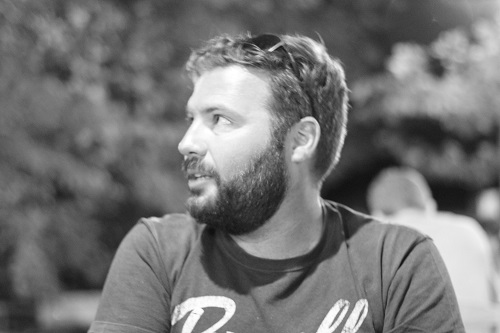
Asimakis Talamagas
has graduated from the Dpt of Biology (NKUA) and completed his M.Ed. “Biology Didactics” in the University of Athens. He is completing his PhD thesis on in the Dpt of Primary Education (NKUA) and is an active Biology teacher for 14 years in Secondary Education. His field of research is Pseudoscience and Teacher’s Education and has developed several edutainment activities as an alternative way to teach Biology.
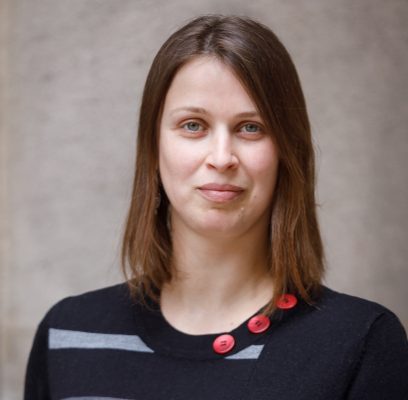
Barbara Heinisch
is a researcher and lecturer with a focus on translation studies at the Centre for Translation Studies at the University of Vienna. Her research interests include specialised translation, usability, accessibility, localisation, terminology and citizen science. She is co-developer of the Austrian Language Resource Portal. Her recent publications include a chapter in the book “The Science of Citizen Science” about the Citizen Humanities.
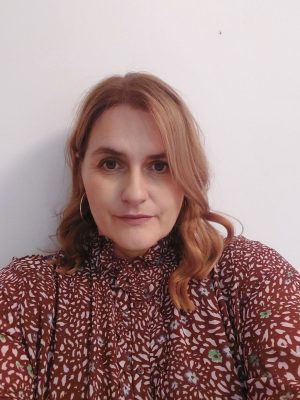
Barbara Pinculić
is Head of User Support at CARNET – Croatian Academic and Research Network. In the last 16 years, her focus has been on implementing projects of digital transformation in the primary and secondary education sectors. She led the e-Class Register project and has participated in a number of CARNET national projects for schools. In the e-School project, she works in supporting schools education system by providing a community for various practitioners. She is currently dedicated to leading teams in customer support and conducting in-house trainings in soft skills and organizational and personal development. She graduated in philosophy and croatology at the University of Zagreb and completed a series of educations in leadership, project management, business psychology, and human resource management.
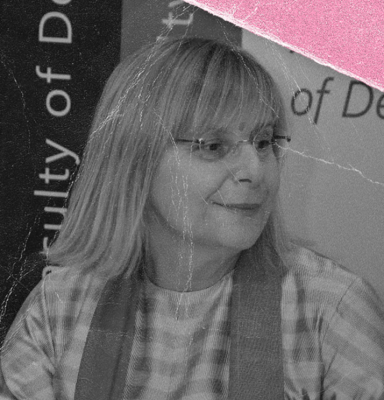
Biljana Jović
Associate Professor, University of Belgrade, Faculty of Forestry. President of the Council of the Department for Landscape Architecture and Horticulture. She defended her doctoral dissertation entitled „Geometric education in the field of visualization and experimental design using virtual technologies“ in 2012, at the Faculty of Architecture, University of Belgrade. Since 2012, she has been managing the creative platform „GEOMETRIJA Workshop“. She is a member of the Serbian Association for Geometry and Graphics and the International Association for Geometry and Graphics.
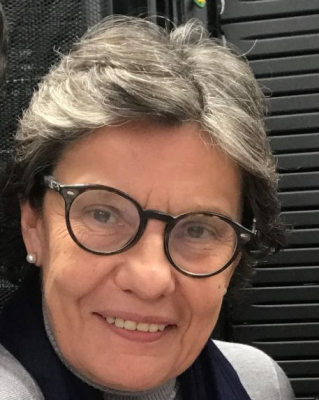
Biljana Kosanović
is an information specialist working at University of Belgrade, interested in and focused on Open Science policy and implementation. She has been serving as OpenAIRE national coordinator for Serbia since 2014 as well as coordinating a few groups and projects focused on implementing Open Science strategy in Serbia on national and institutional level.
During her career, she has established KoBSON (Serbian Library Consortium for Coordinated Acquisition) in 2002 and coordinated and developed it for the following 12 years; established DOISerbia project for assigning DOI to articles in Serbian journals in 2005; established National PhD Thesis Portal in 2013 and has helped with establishment and management of SCIndeks (Serbian Citation Index) since 1994.

Biljana Mijailović
is a history teacher in Third Belgrade Gymnasium, with over 30 years of experience. She has published several professional papers in the field of history teaching and pedagogy. She is a leader of Italian bilingual sector and she organized and conducted many international projects. She is coauthor of project ‘’us and them, before us’’ which deals with teaching about WW2 and Culture of remembrance.
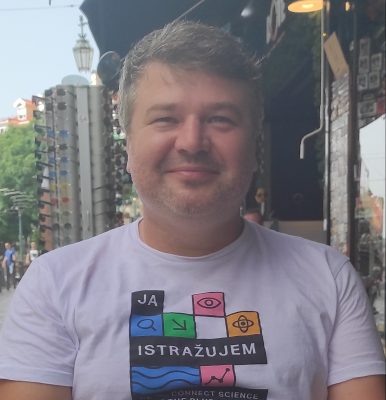
Bojan Crnković
is employed as an associate professor at the Faculty of Mathematics, University of Rijeka. His scientific interest is in the field of applied mathematics. He is the author of numerous lectures and workshops aimed at the popularisation of mathematics and has participated in the design and organization of several popularization projects and activities.
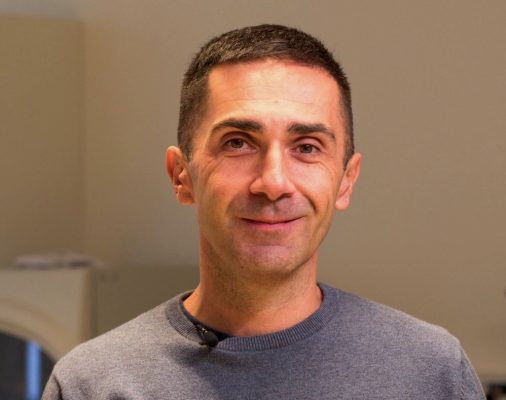
Bojan Kenig
Ph.D. in biology. Before starting his work at the Centre for the promotion of science (CPN), he was a senior research associate at the Department for Genetics of Populations, IBISS, University of Belgrade. From the start of his research career, he has been active in science communication projects. Bojan is currently responsible for designing and implementing non-formal STEAM educational activities. Furthermore, he has been continuously forming a sustainable network by bringing together scientists and artists, encouraging their cooperation and the development of joint projects as a coordinator of the CPN art+science program.
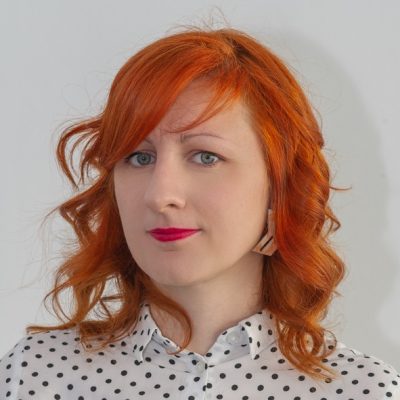
Bojana Dinić
research interests include psychometric and the exploration of the socially malevolent traits and outcomes. In 2020-2021 she was the PI of the project regarding risky use of social networks among adolescents, and she currently participates in several research projects which support open access policy. She has published about 80 papers, several monograph publications, the open textbook “Principles of psychological testing” and one test manual (TOI-SE).
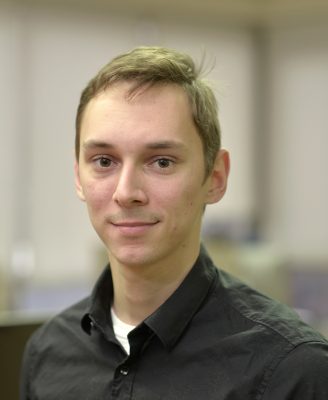
Boris Klobučar
is an expert associate for program activities at the Center for the Promotion of Science, and he has been engaged in science communication since 2010. A physicist by education, he worked as a communicator, science journalist, and organizer of popular scientific events. He was born in 1988 and developed his love for technology while still in high school for electrical engineering. While studying physics at the University, he fell in love with the study of nature. Boris likes to test everything he learns.
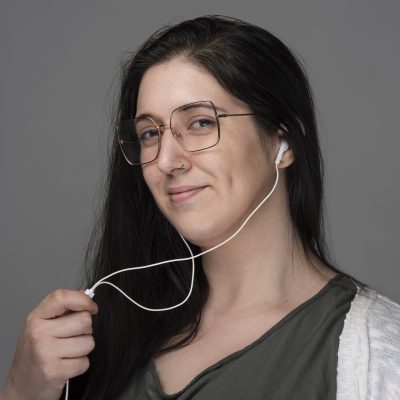
Carla Perucca Iannitelli
is the Policy Officer at Science for Change (SfC) based in Barcelona, Spain. She is the Project Manager of Step Change and European Citizen Science (ECS) EU-funded projects on the Citizen Science topics. She is also in charge of the policy part of NEWSERA, TRANSFORM and other EU-H2020 projects where SfC takes part.
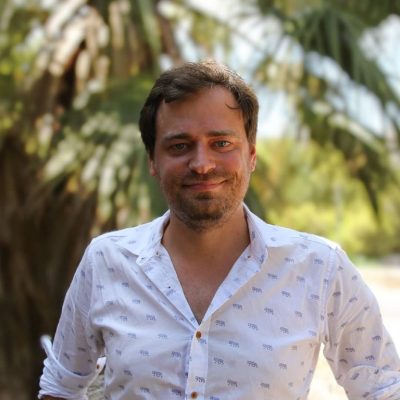
Chris Styles
is a Project Officer at the European Science Engagement Association (EUSEA), based in the United Kingdom. Since 2021, Chris has led the communication and dissemination efforts for a number of EU-funded projects, including projects related to STEM education, Responsible Research and Innovation (RRI), and Citizen Science. Chris is currently the project manager in charge of communications for the Step Change and ResBios projects.
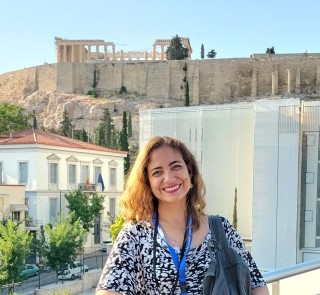
Claudia Aguirre Rios
Mining engineer and MsC in Science communication. For ten years, she worked as Director of Contents and Education at Parque Explora, a science center in Medellin, Colombia. For 4 years she was Coordinator of the Andes node of the Latin American Network for Popularization of Science and Technology. 5 years ago, she moved back to France and had worked for a European project (PERFORM), a science center (Exploradome) and as project manager at TRACES where she recently became director. She organized and participated in International Science Theatre Festivals, Public Engagement with Science Conferences, Public Engagement with Science and Science Communication Congresses. She has coordinated several collective books in Science Theatre and Science Museums.
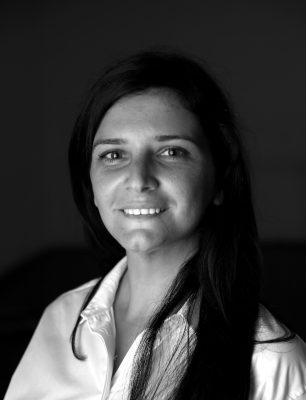
Danijela Vučićević
is a Senior Advisor for Program Activities at the Centre for the Promotion of Science (CPN). Since 2021, she is a PhD student at the University of Belgrade, Biomedical Engineering program. Danijela has been working on science promotion projects, and she is the coordinator of the most popular scientific manifestation May month of mathematics organized by the CPN. From 2013, she actively participate and organize ReConNeCt, ReFocuS, Scientix, UNICEF and SALL projects. She is currently responsible for implementing non-formal STEAM educational activities through the network of Makers Labs.
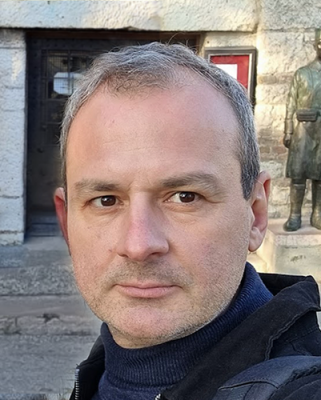
Dejan Pajić
is an associate professor at the Department of Psychology of the Faculty of Philosophy in Novi Sad. His main fields of interest are research evaluation, human-computer interaction, and information visualization. He was actively involved in numerous open science projects, such as the development of the Serbian Citation Index, University of Novi Sad Repository, interactive open textbook Application of visualization techniques in basic statistics, and free statistics course Be Data Driven. He is a member of the Team for Open Science in Serbia and a member of the Statistical Council of the Statistical Office of the Republic of Serbia.

Dobrila Močević
is a communications practitioner and a director of the PRIME Communications agency in Bosnia and Herzegovina. She deals with the creation and implementation of communication strategies for commercial clients, non-governmental organizations, domestic and international institutions. Dobrila strongly believes that education and media, information and scientific literacy as well as communication are of critical importance for improving both social and economic environment.
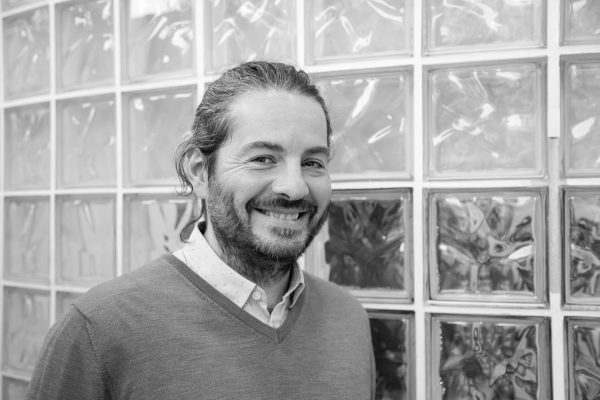
Dobrivoje Lale Erić
leads the Department of International Cooperation at Serbia’s Center for the Promotion of Science (CPN) since 2015. He’s been involved as an expert, work package leader or team member in numerous EU projects and initiatives dealing with science communication, research policies, STE(A)M education and art & science practices, with a focus on learning, climate and AI topics lately. He serves as a member of the Programme Committees at the Belgrade Open School and at the ECSITE association.
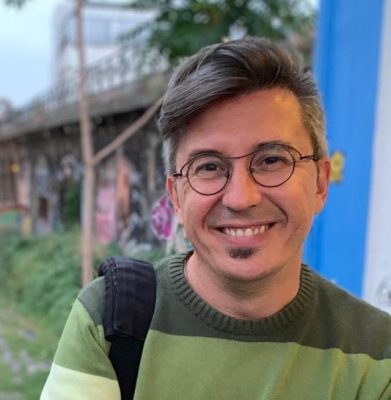
Dušan Mišević
is a Director of Research Affairs at the Learning Planet Institute (formerly CRI) in Paris. His background is mathematics and biology, with a splash of computer science. He is ever curious about evolution (especially of sex and cooperation), passionate about teaching and education, and engaged in citizen and open science. Scientist, mentor, teacher, communicator, organizer, problem solver, mixologist, bookworm, geek.

Dušan Pavlović
is an experienced scientific educator and a science communicator. For years he has been part of the well known Petnica Science Center in Serbia, an independent and nonprofit organization for extracurricular, formal and informal science education. Dusan also has extensive experience in radio production as the author and the editor of the radio/podcast show Radio Galaxy. He deals with science journalism in a radio format, and has experience with other forms of science journalism as well. Dusan studied astrophysics and works as a Data Scientist at Quantox Technology company.
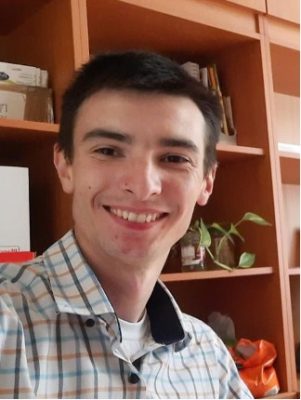
Đorđe Vojnović
is currently a PhD student at the University of Novi Sad at the Faculty of Agriculture. He is a teaching assistant in the scientific area of Field and Vegetable Crops, where he holds exercises in several undergraduate and master study courses. He is a researcher in growing vegetable crops, focused on studying the application of different biostimulants in vegetable production. In 2022 he was on a study visit to the University of Debrecen in Hungary. The same year, he improved his skills in the course and summer school on Ethics Integrity and Clean Energy and climate change solutions. He is the secretary of the Vojvodina Association of Vegetable Growers in Novi Sad and a member of the Serbian Genetics Society.
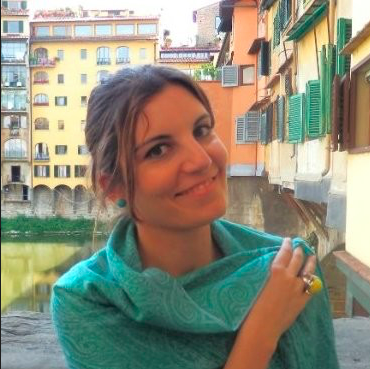
Eirini Chatzara
is a PhD candidate in the field of Climate Crisis and Public Understanding, at the National and Kapodistrian University of Athens. She received her first degree as well as a Master’s degree in Physics from National Technical University of Athens. She also holds a Bachelor’s degree in Pedagogy. After working as a STEM developer and educator in top EdTech companies in Greece and Cyprus, she is now a teacher in an Athens public school, where she seeks to infuse the coolness of physical sciences into day-to-day learning.
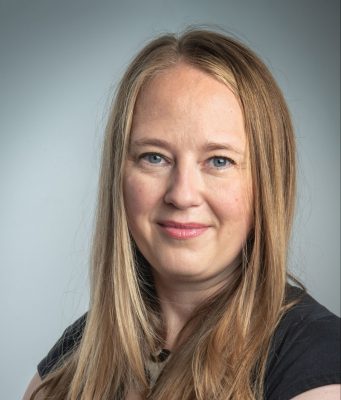
Elke Dall
is a sociologist by training working at the Centre for Social Innovation (ZSI) in Vienna, Austria. She is a member of several EU-funded projects dealing with Responsible Research and Innovation, citizen science, research and innovation policy as well as the inclusion of the Western Balkans in the European Research Area (WBC-RRI.NET, POLICY ANSWERS, Step Change).
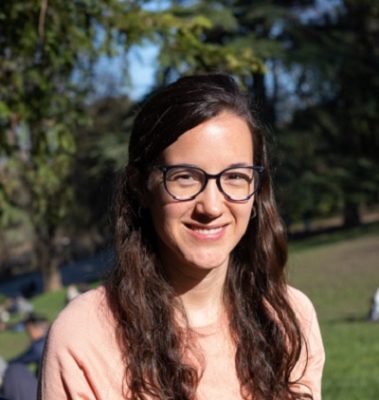
Eugenia Covernton
is the CEO of Lecturers Without Borders. She studied Biotechnology in Argentina and Science Management in South Korea, before moving to France in 2014 for a PhD in Virology. She is fascinated by viruses, but her true passions are education and science communication. She does teaching and coaching for researchers on science communication and outreach.
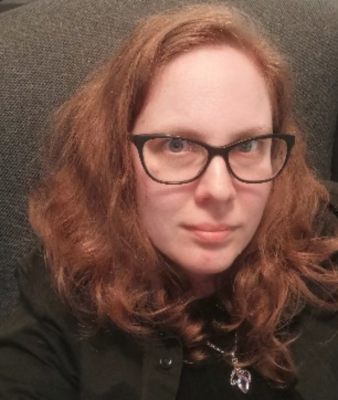
Gefion Thuermer
is a computer scientist at Kings College London who currently works on IMPETUS, a Horizon Europe project that provides resources, support and recognition to citizen science initiatives across Europe. In IMPETUS, Gefion is the technical and scientific coordinator, with responsibility for overall project delivers, and the open calls to recruit citizen science projects. I wonder how it must be to be at such a time in such a place in such a position … which adjectives would you use?
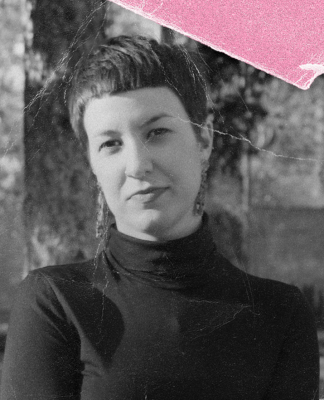
Iva Olujić
was born and raised in Zagreb, where she completed her undergraduate studies in Philosophy and Italian Studies. Nevertheless, she opted for the theater and completed Theater and Radio Directing at the Faculty of Dramatic Arts in Belgrade, after which she enrolled for another year at the Ljubljana Academy. I wonder how it must be to be at such a time in such a place in such a position … which adjectives would you use?
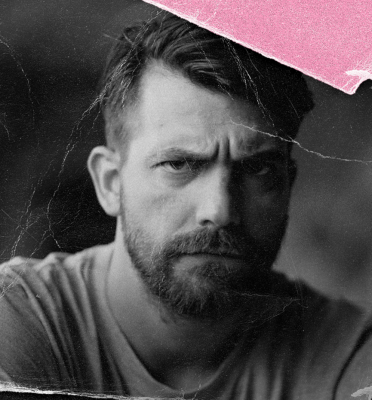
Ivan Lušičić Liik
graduated from the Faculty of Architecture and light design at the Academy of Dramatic Arts in Zagreb. He entered the world of performing arts during his student days and has been designing light, video projections, sets and installations for theater, musical performances and museum exhibitions ever since. He exhibited and performed as part of the Perforation festival, the Youth Salon exhibition, the Zagreb Music Biennale, etc. He is a member of the Croatian Association of Fine Artists of Applied Arts and the Croatian Association of Independent Artists.
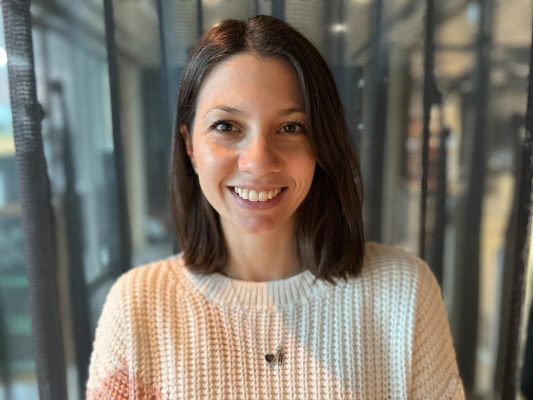
Ivana Nikolić
is a journalist at the Center for the Promotion of Science, where she covers scientific topics for the web portal Elementarium and the magazine Elementi. She holds a BA degree in Journalism from the Faculty of Political Sciences in Belgrade, where she is currently pursuing her Master’s degree in Peace, Security and Development. She has been a professional journalist since 2014, and so far she has written for several media outlets in the country and the region, including Balkan Insight, Belgrade Insight, BBC in Serbian, VICE Serbia and Optimist.
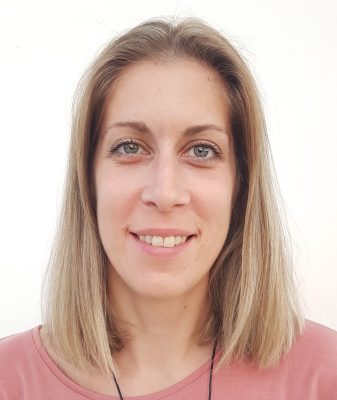
Ivana Šeparović
comes from the island of Lošinj, Croatia, where she works at the Blue World Institute. With her bachelor’s degree in social work she is in charge for the projects of sustainable development of local community with the emphasis on tourism and she works as an educator with the groups of children and youth. Currently, she is finishing bachelor’s degree in social policy and coordinating activities of two projects funded from European Social Funds and Horizon 2020 programme.
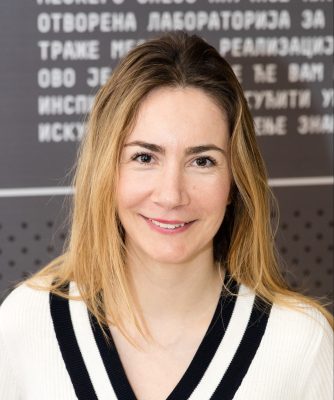
Jelena Joksimović
is a psychologist, researcher and activist in the field of education. She received her doctorate in psychology of education at the Department of Psychology at the Faculty of Philosophy, University of Belgrade. Her field of research includes: critical pedagogy; maker culture and education; quality of the teaching/learning process. She is a co-founder and an active member of the Škograd and works at the Center for the Promotion of Science as coordinator of educational programs.

Jelena Kalinić
is a biologist, science journalist, science communicator and science blogger with a MA iin comparative literature, based in Bosnia and Herzegovina. She writes about scientific developments for several media outlets and has been a participant in a number of panels and conferences on science journalism. In her career Jelena has founded a number of platforms dedicated to communicating science to ordinary people: a scientific portal and a YouTube Channel Quantum of Science, a website focused on informing citizens about vaccines, Vakcine.ba as well as The Society for the Promotion of Natural Sciences, ‘Science and The World.’ All these activities now work under the umbrella name of ‘Science is Talking.’ She reports on science in an interesting way, combats pseudoscience and fake news, especially the ones about vaccines, and communicates science to citizens, with a focus on young people. Jelena is also an advocate of strengthening scientific literacy. In 2022, she won 2nd place in the selection for European Science Journalist of the Year, organized by the European Federation for Science Journalism in Leiden, The Netherlands.

Jelena Mucić
Pedagogical advisor Jelena Mucić works as a chemistry teacher in primary schools „Jovan Dučić” and “Mladost” and has extensive work experience. As an external associate, she cooperates with ZUOV and ZVKOV. She has published several professional and scientific papers in the field of chemistry teaching and pedagogy, for which she has been awarded. She is the co-author of the Collection of tasks for the final exam in elementary education. At seminars she regularly improves her skills and collaborates with colleagues from the country and abroad in numerous projects.
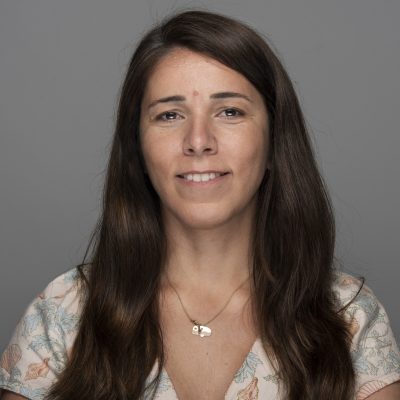
Joana Magalhaes
is a Senior Researcher and the Project Coordination Manager of NEWSERA at Science for Change. She holds a PhD in Biochemistry and Molecular Biology and has more than 15 years experience in health sciences, science communication through media from a gender perspective and public and patient involvement. She is a Numerary Academic at the Galician Academy of Portuguese Language, and a Board Member of the Association of Women in Science and Technology and the Galician Association for Science Communication.
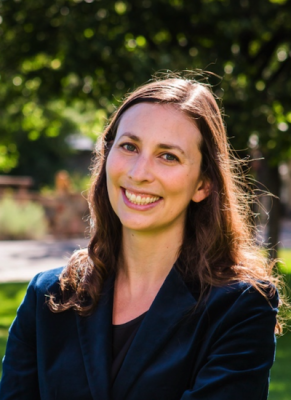
Joanna Gordon Casey
Ph.D, is an Assistant Professor of Physics and Engineering at Fort Lewis College, in the Four Corners region of the United States. She is serving the US Embassy in Belgrade as an Air Quality Fellow. Her research is focused on improving low-cost air quality measurement techniques, including measurements and analysis of greenhouse gas emissions. Before joining Fort Lewis College as a faculty member in 2019, Dr. Casey implemented the Ambient Air Quality Regulatory Monitoring Program for the Southern Ute Indian Tribe.
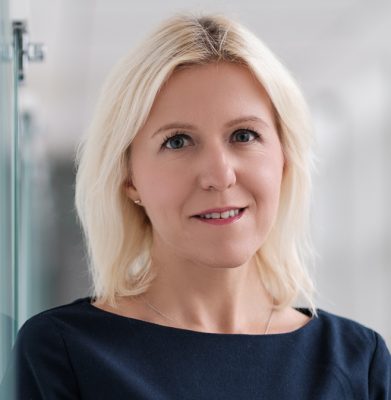
Joanna Morawska
holds a position of an adjunct at Adam Mickiewicz University, Poznań, Poland, Faculty of Human Geography & Planning. She graduated from political science and did her PhD in economics. She has over twenty years of experience in academia, administration, national & international project management. Her research interests are related to regional innovation (eco)systems, especially the new forms of innovation, including (digital) social innovation.
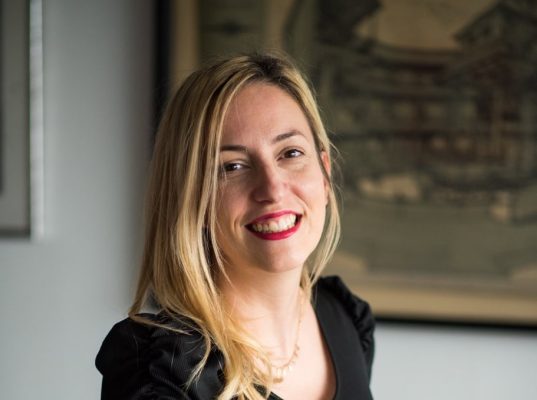
Jovana Karaulić
is employed at the Faculty of Dramatic Arts, Department of Management and Production and is an active member of the Laboratory of Interactive Arts, as well as a member of the IETM network, where she participates in the work of the group for Immersive Art, as well as the IFTR network. She participates in the Faculty of Dramatic Arts cooperation projects supported by Creative Europe.
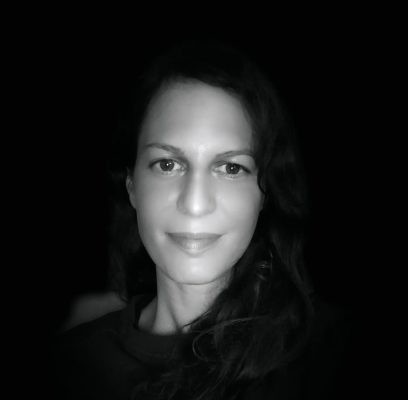
Kaja Damnjanović
is an assistant professor and research associate at the Faculty of the Philosophy University of Belgrade. The scope of her research is in the field of psychology of human rationality and biased reasoning. She received the award for the popularisation of psychology in 2022, from the Serbian Psychological Association.
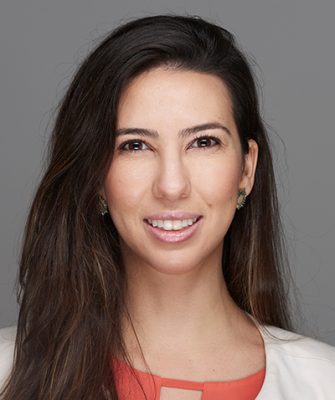
Karinna Matozinhos
is the Communication Manager at Science for Change (SfC) and responsible for the project ENJOI (Engagement And Journalism Innovation For Outstanding Open Science Communication) at SfC. She is a journalist with a Master’s degree in Science, Medical and Environmental Communication. Karinna has more than 10 years of experience in the communication field. She has collaborated with a think tank in the US regarding the dissemination of scientific research on the climate emergency. She also worked in an NGO in Brazil promoting science and innovation in tropical biomes.
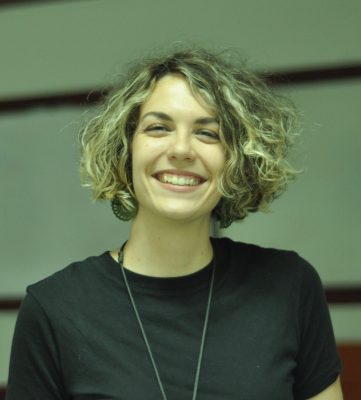
Katarina Stekić
is an Advisor at the Department of International Cooperation, Center for the Promotion of Science in Serbia. She is also a researcher at the Laboratory of Neurocognition and Applied Cognition at the Faculty of Philosophy in Belgrade, where she is working on her Ph.D in psychology. Katarina is an active Head of the Combined Sciences Seminar at the Petnica Science Center. She has been involved with science education and science communication since 2015 through several Erazmus+ and Horizon Europe projects.

Katarzyna Świerk
graduated in chemistry at the University of Gdańsk, Doctor of Chemistry. Since 2015 the Head of the Research and International Cooperation Office. Hitherto she has been dealing with the theoretical and practical problems of higher education, its structures, organization and obtaining academic degrees. Certified auditor of the European Union in the field of HR Excellence in Research and Horizon 2020.
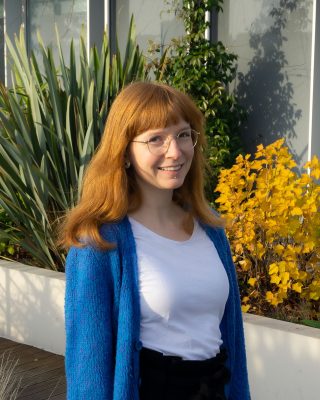
Katharina Kloppenborg
is a PhD candidate at the Learning Planet Institute of Université Paris Cité. Her research is about online tools for citizen science. More concretely, she explores how to design participation architectures that support projects and communities in examining their research and societal goals. With a background in cognitive science and user experience, Katharina cares about putting the human in the center of the design process, privileging participatory approaches.
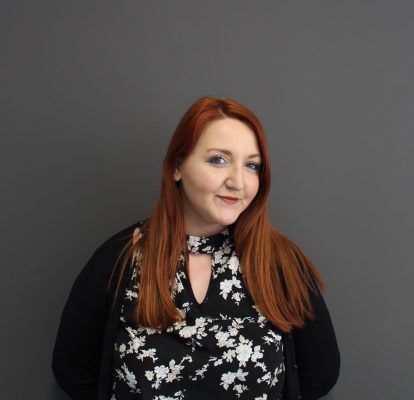
Kejt Dhrami
is a lecturer and researcher at POLIS University as well as Head of Territorial Governance and Spatial Planning Unit Co-PLAN, Institute for Habitat Development in Tirana, Albania. In the frame of the WBC-RRI.NET project, she implements an initiative in the Kune-Vain-Tale Lagoon which aims to apply citizen science practices in evaluating ecosystem services of this protected area in the context of increased vulnerability from climate change.
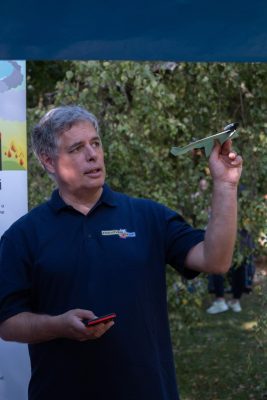
Krešimir Čanić
has had a multifaceted career, having worked as a marketing manager, physics laboratory demonstrator for computing students at the Split University, grammar school physics teacher, creator and director of a number of science popularization events in Croatia and abroad, and Školska knjiga’s advisor for EU projects in education. He is active in several associations in a variety of fields and is a member of the Croatian Government’s Council for Civil Society Development in Design and Technology and a Member of the Management Board of the National Foundation for Civil Society Development. As an active participant in global science communication, three years ago he joined the Management Board of the Beijing Global Network of Science Festivals as one of its founders.
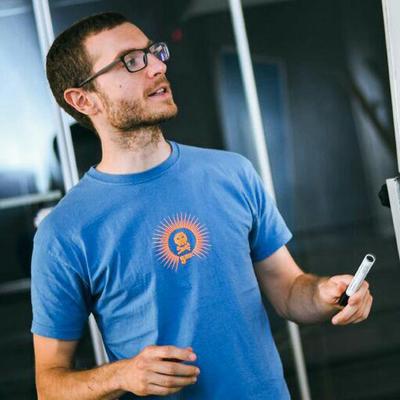
Kristijan Tkalec
Head of BioTehna laboratory and head of mentors at Kersnikova institute. Finished his academic degree at University of Ljubljana after which he worked as a researcher at National Institute of Chemistry. He migrated to science center House of Experiments as a science communicator and in 2013 joined the team at emerging laboratory – BioTehna. In 2013 he co-founded a non-governmental organization Academy for the Curious and in 2014 a non-governmental organization Rampa.
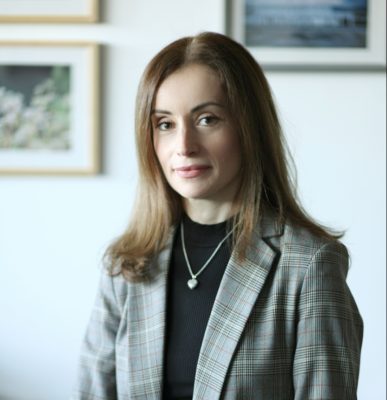
Ljiljana Rogač Mijatović
Phd, is Associate Professor at the University of Arts in Belgrade, Faculty of Dramatic Arts. She holds a PhD since 2012 at the University of Arts in Belgrade in international cultural relations. Her research interest includes cultural diplomacy, cultural policy, and science policy. She is a member of the Scientific Council of the Fund for Science of Serbia and EU COST Actions Review Panel Member.
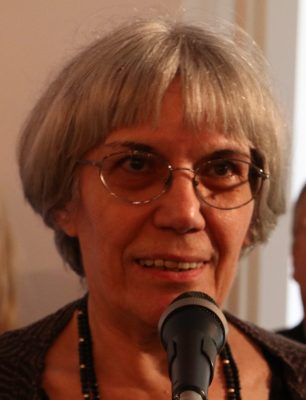
Ljubica Beljanski-Ristić
Graduated Yugoslav literature and the Serbo-Croatian language from the Faculty of Philology in Belgrade. Since 1977 she had worked in the Cultural Centre “Stari grad”, where she has initiated innovative, creative and interactive projects for children and youth, gathering and providing support to young professionals and artists to engage in through practice and practical research projects. In 1999, she founded the Centre for Drama in Education and Arts CEDEUM (National Centre of International Association for Drama/Theatre and Education IDEA). In 2000, she designed the concept of Bitef Polyphony, the side program of the Belgrade International Theatre Festival of new theatre tendencies Bitef. She is currently an external consultant within the „Cultural Participation and Cultural Heritage“ project realized by the Institute for the Study in Cultural Development of Serbia.
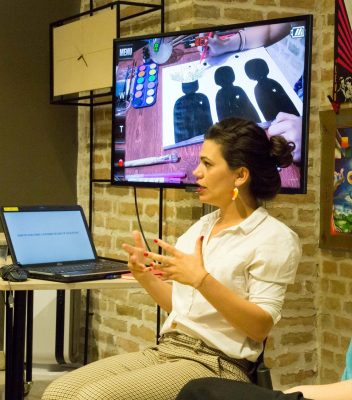
Maja Maksimović
is an Assistant Professor at the Department of Pedagogy and Andragogy at the Faculty of Philosophy of the University of Belgrade. At the moment, she focuses her research practice on the entanglement of the educational, activist, and artistic, trying to incorporate the critical, embodied, spatial and imaginative into a repertoire of action. Maja has intensive cooperation with NGOs, self-organized groups, and activist organizations, trying to build stronger links between academia and the civil sector, but also to explore public spaces as participatory educational sites. She is a part of ESREA steering committee and a co-convenor of the ESREA network Active Democratic Citizenship and Adult Learning. Maja is also a member of Škograd collective.
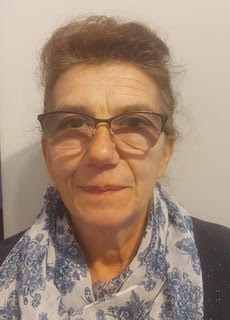
Maja Nikolova
I graduated and past master’s degree on the Faculty of Philosophy in Belgrade, group for pedagogy. I worked for several decades at the Pedagogical Museum in Belgradelike a museum adviser, where I realized dozens of exhibitions in the field of school history and contemporary topics. My personal interest was the work of Serbian schools abroad. Now, I am doing research in the field of children’s holidays in Serbia from the middle of the 19th century until today. Within that topic, I am especially interested in the transformation of the New Year’s Eve and the attitude towards Santa Claus and the differences of that in the capitalist and socialist society. The book Robotic Education was published in 2019, and after that I wrote several articles, including Positive impact of migration in the field of education, Children of German nationality in orphanages in Serbia in the period after the Second World War, Education of Serbian theologians in England during the First World War.

Maria Savanović
is a Research Assistant and PhD student in chemistry at the Department of Chemistry, Biochemistry and Environmental Protection, Faculty of Science, University of Novi Sad. Her field of research is closely related to the examination of the stability of pharmaceuticals and pesticides, as well as their removal from water using Advanced Oxidation Processes. She is the co-founder and board member of the Association for the International Development of Academic and Scientific Collaboration – AIDASCO (https://aidasco.org).
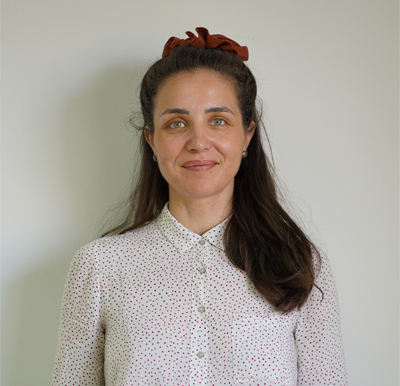
Marija Cvetinović
is an Expert Associateat the International Cooperation Department at CPN and an assistant professor at the Faculty of Architecture Union University. She holds a doctoral degree in architecture and urbanism from the Ecole Polytechnique Federale de Lausanne (EPFL), Switzerland. During her EPFL mandate, she was scientific coordinator of a research project funded by Swiss National Science Foundation. In period 2015-2018, she was a scientific and administrative coordinator of the EPFL team within SNSF Institutional partnership project between EPFL (Switzerland) and the IAUS (Serbia). Since 2018, she has been a local external reviewer on the engineering projects in Serbia for the Innovation Fund of RS and International Bank for Reconstruction and Development (World Bank).
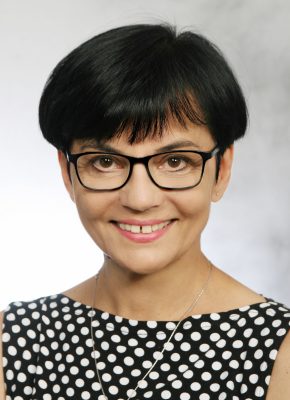
Marija Jevtić
Full professor at the University of Novi Sad, Faculty of Medicine, a specialist in Hygiene and medical ecology (Public Health) at the Institute of Public Health of Vojvodina Research collaborator at the Université Libre de Bruxelles, Research Centre on Environmental and Occupational Health, School of Public Health. Associate member of the Academy of Medical Sciences Serbian Medical Society. − Group analytic therapist and System Psychodynamic Organizational Consultant. − President of the Environment and Health Section European Public Health Association (EUPHA), − EU Climate Pact Ambassador
− ENBEL (Enhancing Belmont Research Action to support EU policy-making on climate change and health) – Member of Advisory Board (HORIZON 2020) https://www.enbel-project.eu/people
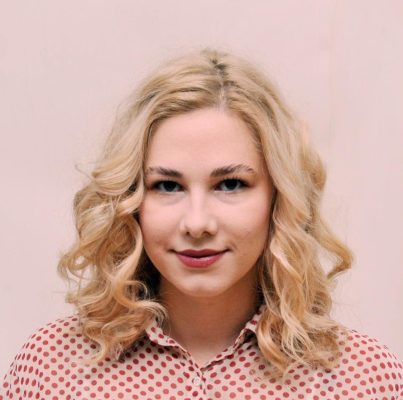
Marija Nedeljković
is a master’s student of Communication of Science and Innovation at the University of Trento, Italy, and a science facilitator at the Center for the Promotion of Science. Besides that, she did a Master’s thesis in Genetic engineering and biotechnology at the Faculty of Biology in Belgrade and she is engaged as an Assistant at Petnica Science Center. Spending time there allows to explore her creativity and to be constantly surrounded by curious and motivated people. She takes part in and contributes to several projects, presentations, and workshops in a way of co-creation and innovation. Marija hopes that Climateria will bring some part of that energy to many other people.
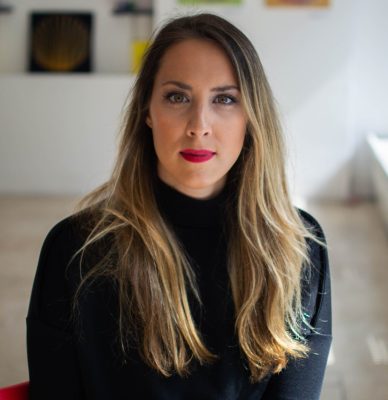
Marjana Brkić
works as an Advisor at the Department of International Cooperation, Center for the Promotion of Science in Serbia. Marjana earned her PhD in the field of Neuroscience under joint supervision of University of Belgrade, Serbia and University of Ghent, Belgium. Besides, she holds a Master Degree in Management and Organisation from the Faculty of Organizational Studies. From 2012 she is actively involved in science communication through organization of various events that open science towards society. Moreover, she coordinated several projects related to climate literacy and STEAM education, from Horizon 2020, Horizon Europe, and Erasmus+ frameworks.
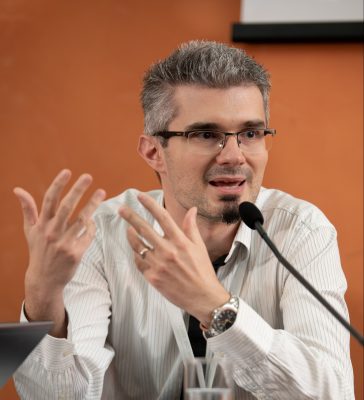
Marko Košiček
Ruđer Bošković Institute (RBI), biochemist, professional consultant and coordinator of popularization activities at RBI. He received his PhD in biochemistry from the Faculty of Natural Sciences in Zagreb. He participated in numerous science popularization activities (Festival of Science, Scientific Picnic, RBI Open Day, European Researchers’ Night), hosts the science show Third Element on Croatian National TV (HRT3), established Society for Out-Of-Frame Education, and was a long-time member of the organizing committee for the Summer School of Science for high school students. Together with his colleague Saša Ceci (RBI), he was awarded the State Award for Popularization and Science Promotion in 2014.
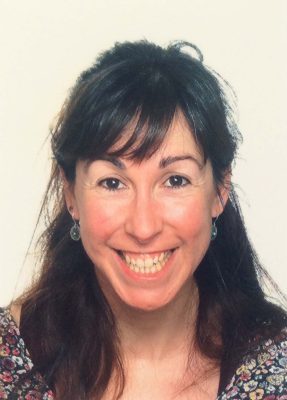
Marta Terrado
is a senior researcher and science communicator in the Earth Sciences department at the Barcelona Supercomputing Center in Spain. There, she co-leads the Knowledge Integration team, constituted by experienced researchers and young talents working together to bridge the gap between science and society. Applying various communication and dissemination tools and activities, Marta facilitates knowledge and technology exchange on air quality and climate services with stakeholders from different sectors to support their adaptation to climate change. She is an Environmental Scientist and holds a PhD in Earth Sciences from the University of Barcelona.
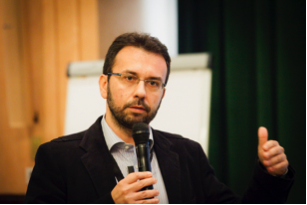
Menelaos Sotiriou
is a science writer and communicator (background Applied Mathematics) with 20 years of international work experience. He is holding a Master in Total Quality Management and currently he is working in the field of science communication. His main research focus is on the communication of scientific research to the wider public. A special interest is in the Education field where he has realized numerous projects (National and International) and more specifically in the development of self-reflection tools measuring the innovation and e-maturity of school units.
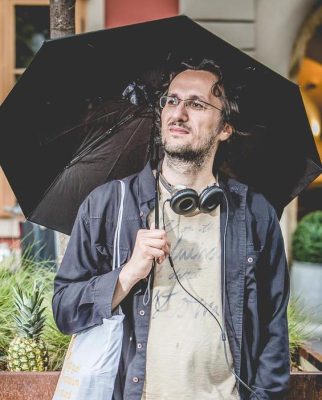
Mersid Ramičević
a composer, artist-researcher, and multimedia practitioner working in the field of electroacoustic composition, phonography, sound art, and music performance. Has graduated in Composition at the Sarajevo Academy of Music and obtained the Master’s Degree in Contemporary Performance and Composition from the Hamburg University of Music and Theatre. Was awarded a number of scholarships, commissions and artistic residencies dealing with technology and practice-led research in sonic arts. Has performed at the BIOS Romantso Athens, klingt gut! Symposium on Sound and Spatial Audio in Hamburg, Sound, and Music Computing Conference Hamburg, Solidart Basca Theatre Timișoara, KIBLA Multimedia Centre Maribor, Gallery-Legacy of Milica Zorić & Rodoljub Čolaković in Belgrade, Salle Varèse – CNSMD Lyon etc. Interested in the critical auditory expositions and the music score in the realm of expanded media.
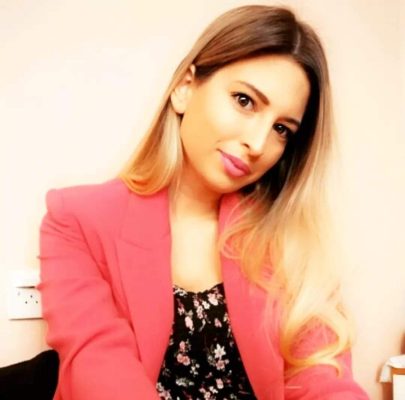
Milena Živković
was born in 1995 in Kragujevac. It’s the bearer Vuk’s diploma at Svetozar Marković elementary school and a participant numerous competitions, where a special place is held by the first person who was released a place in mathematics at a regional competition and a scientific review of research and artistic creativity. She graduated from the First High School with excellent results, majoring in mathematics. she completed her studies in physics Faculty of Science and Mathematics in Kragujevac, with an average grade (9.50). For four years in a row, she was announced as the best student at Faculty of Science and Mathematics. He is actively involved in the promotion of science which is confirmed by numerous diplomas from festivals and science fairs around the world Serbia.
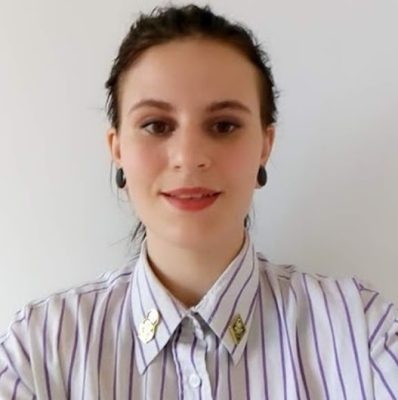
Milica Vukadin
is a preschool and ESL teacher for young and very young learners. She has a Bachelor’s and a Master’s degree in Early Childhood Education, with an additional Master’s degree in TEYL (Teaching English to Young Learners.) She has been teaching online since 2016, and she has her own online CLIL school of English for children, ELLoquent, where she uses E-STEAM online daily. Milica is a teacher trainer in British Council and Erasmus+ programs for teachers, and her professional passions also include writing semi-formal articles and designing interactive ESL materials for children. She is the founder of Alice in Methodologyland nonprofit dedicated to improving teaching practice in ESL.
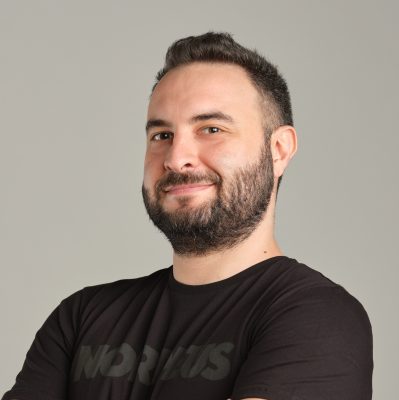
Miloš Đuričanin
Since 2018, as part of Nordeus, Miloš Đuričanin has been managing strategic initiatives aiming to improve formal and non-formal education, strengthen the gaming startup ecosystem and the business environment, with a special focus on strengthening the capacity of ecosystem organizations and professional communities. Since 2021, Miloš has been a member of the Board of the Serbian Gaming Association. Prior to Nordeus, he worked for more than 7 years in the Serbian Association of Managers, managing business development programs of the largest business organization in Serbia. Today, he is a part of the Nordeus Foundation and drives its strategic development.
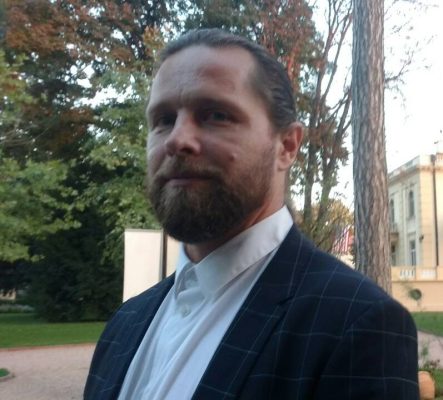
Miroslav Novta
Miroslav Novta je diplomirani inženjer elektrotehnike. Diplomirao je na Fakultetu Tehničkih Nauka Univerziteta u Novom Sadu 2001 godine. Na usmerenju za Telekomunikacije. Nakon studija se bavio naučno istraživačkim radom na katedri za Računarske Tehnologije i Računarske Komunikacije i objavio kao autor ili koautor nekoliko naučnih radova. Karijeru je nastavio u privredi. Miroslav sa bavio razvojem telekomunikacionih tehnologija 19 godina. Poslednje tri godine se preorijentisao na finansijske tehnologije. Na raznim liderskim pozicijama je proveo 10tak godina. Sertifikovani je SCRUM master u Scrum Alliance zajednici. Možda je interesantno istaknuti učešće na par hakatona. Rezultati jednog sa od njih su i javno objavljeni na internetu na adresi https://devpost.com/software/mediquest. Radi se o Hakatonu koji se bavio tematikom rešavanja problema u jeku COVID-19 pandemije. Što se tiče neprofitnog posla tu je jedan interesantan projekat koji ima za cilj razvoj tastatura za rusinski jezik za razne računarske platforme.

Miroslava Nikolić
is ICT teacher in Gymnasium Patriarch Pavle, with over 30 years of experience. Member of Oracle Academy, Selfie project, Scientix, STEAM etc. Awarded in the country and abroad. She is coauthor of 3D Printing Student’s company logo project, Erasmus+ Project Team member responsible for ICT support.
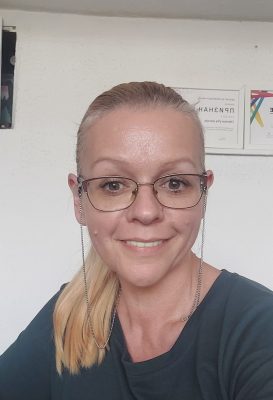
Neda Bogojević Preković
Author and implementer of the seminar „School open to parents 2 – effective communication with parents to better cooperation“, accredited by the Institute for the Advancement of Education and Upbringing, which is in the Catalog of the Institute for 2018/21. year, located under catalog number 163. and „Parent – Associate in Prevention, Recognition, Detection and Suppression of Violence and Discrimination in Educational Institutions“, located under catalog number 143.
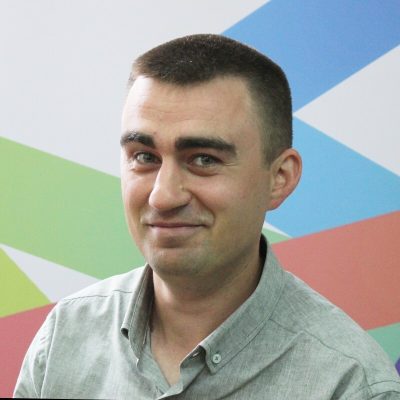
Nikola Mladenović
graduated from Faculty of Geography at the University of Belgrade module Geospatial and Environmental Science, and gained a title of Master of Science at Faculty of Agriculture at the University of Belgrade, module Environmental protection in agriculture. He has been an active member of the citizens’ association „Centre for the Development of Informal Education of Citizens“ since 2018, where as a GIS analyst he successfully implemented the project „Forests and Climate Case Study for the City of Bor“ in 2018, which was financed by the Ministry of Environmental Protection. He participated in the UNDP open data challenge for the creation of the „Forests and Climate“ platform, which was awarded at the 2019 European Youth Award for the best project in the „Planet Friendly“ category, the platform was also awarded at the World Summit Award in the „Young Innovators“ category.
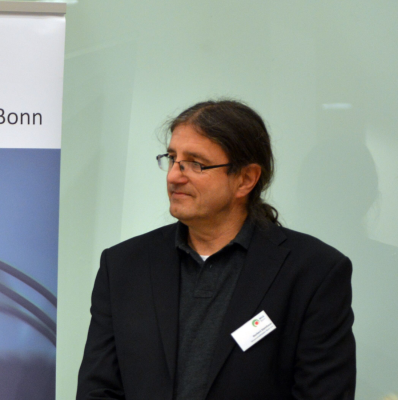
Norbert Steinhaus
is a board member of Bonn Science Shop since 1990 and the coordinator of Living Knowledge, the international Science Shop network since 2007. For the last 22 years he cooperated in international projects on citizen participation or RRI, actually coordinating the H2020 project TeRRIFICA and being involved in the EC-funded projects on bioeconomy. He was a member of the Horizon Europe mission assembly for Soil Health and Food and a German expert group on Science Communication initiated by the Federal Ministry for Education and Research.
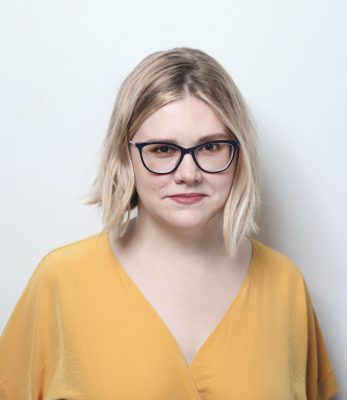
Olga Dobrovidova
is a science journalist and communicator based in France. She is Russia’s first and only Knight Science Journalism Fellow (class of 2014-15) and MBL Logan Science Journalism Fellow (2019). She has spent more than ten years covering policy-relevant science and the environment, with a focus on climate change, in Russian and English; her work can be found in N+1, Meduza, Climate Home, STAT, Undark, BBC, MIT Technology Review, Nature, and Science. In 2020-2021, she worked as a senior copywriter at Skoltech, and now she works in strategic communications for climate change. Olga teaches science journalism, science communication, and various other interdisciplinary courses at ITMO University in Saint Petersburg, University of Tyumen School of Advanced Studies, and HSE. A McKinsey&Co Next Generation Women Leaders (2014) alumna, Olga is the president at AKSON, the Russian science communicators association, and the vice president of the European Federation for Science Journalism (EFSJ).
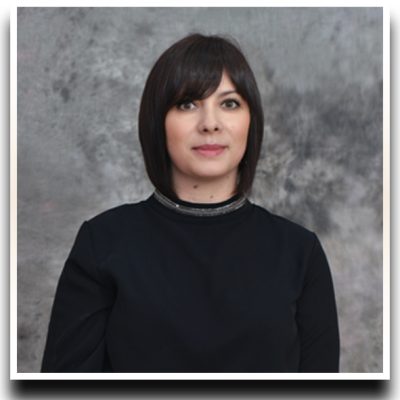
Olivera Ivanović
For twelve years, Olivera Ivanović has been working as an associate of the Competence Improvement Center in Leskovac. She creates and realizes continuous professional development programs dealing with communication, mediation, professional development and public speaking. As a coordinator of the Science Club, she has the opportunity to participate in and create programs aiming at decentralization, promotion and popularization of science to all age groups. She was a coordinator representing Leskovac in the international project European Researchers’ Night for several years.
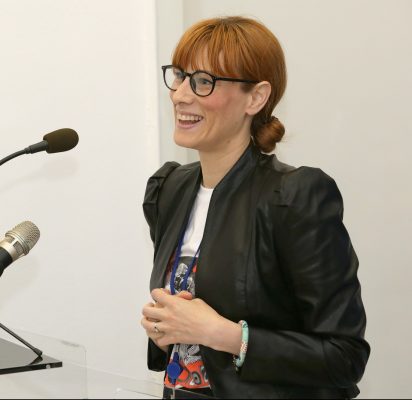
Petra Buljević Zdjelarević
Ruđer Bošković Institute (RBI), is a trained senior media and communications specialist with 13 years of experience in internal and external communications, reputation management, social media and media relations, event and project management. She works as the head of the PR office at the Ruđer Bošković Institute (RBI) and is responsible for strategic communications, reputation management, issue and crisis response, public affairs and media relations, including consulting and media training for RBI staff. She has experience as a communications consultant for various EU-funded projects, focusing on project branding and media campaigns to maximize project objectives. She is a member of the national communication teams for international science and research projects such as EUROfusion and AI4Health.Cro.
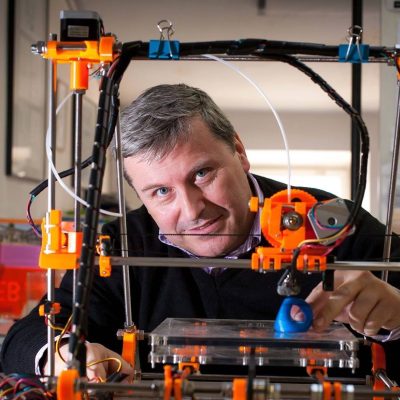
Roberto Vdović
MSc, M.Arch. is an architect, researcher, educator and entrepreneur. He has been a pioneer of digital technology research and implementation in the field of architecture since 1987. He is the President of FabLab Croatia. As a project manager or national coordinator he is involved in several European projects. He is producer of the Maker Faire Zagreb since 2019. Inspired by experience from projects he initiated in 2019, Adriatic GreenLab, an initiative to establish a center where innovative and creative people can responsibly contribute with accessible and inclusive solutions for real-life problems in remote areas. In 2020 he became Head of the Research, Development and Innovation Department at the Faculty of Architecture University of Zagreb.
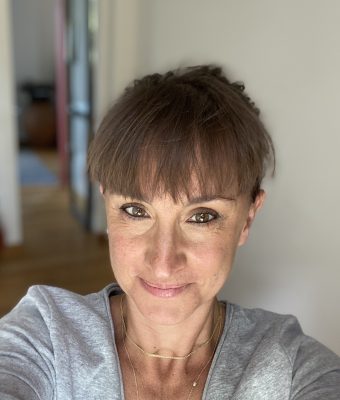
Selvaggia Santin
is a Senior Science Communication manager at Euro-Mediterranean Center on Climate Change (CMCC) and she’s working daily on Climate & Ocean literacy research projects. Since 2005, she is a science editor for Italian scientific publishing companies where she contributes to education outcomes in science textbooks for different ages learners. She is a consultant editor for the Intergovernmental Oceanographic Commission (UNESCO), she is the founder and vice-president of the Ocean Literacy Italia association, and she is involved in school publishing, educational workshops, science festivals, and interactive exhibitions. She get a PhD in Biodiversity and Evolution as well as an MSc in Integrated Coastal Zone Management for Sustainable Development.
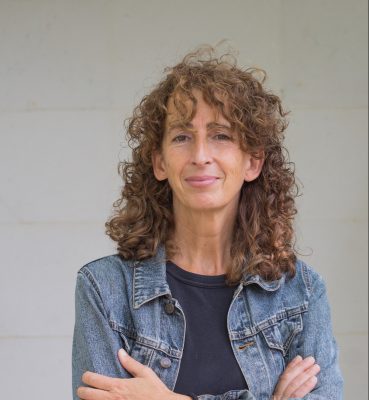
Sílvia Simon
is a professor of Physical Chemistry at the University of Girona and carries out research within the Institute of Computational Chemistry and Catalysis, mainly in the study of hydrogen bonding. Having been involved in Science Communication for more that 15 years as the Director of the Chair for Science Culture and Digital Communication, she has led many research and innovation projects related to Communication of Research, Women and Science, Science Dissemination, and others.
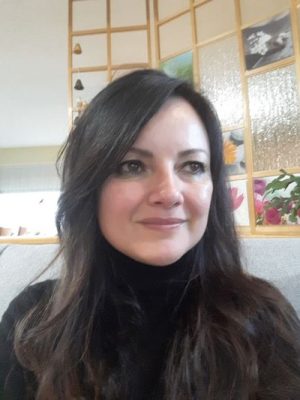
Simona Slavič Kumer
is a senior consultant for biology at National Education Institute Slovenia (NEIS). Her research and working areas are: biological (science) education, particularly active teaching and learning approaches in biology (science) – IBL, formative assessment, sustainable development etc.; coordination and performing of different types of in service training for teachers (seminars, study groups, conferences); preparing and implementing new curriculum etc. She was the co-leader of the development group for scientific literacy in the national project NA-MA POTI, she participated in international projects as Scientix 2 and 3, Youth Start; ATS 2020 and ATS STEM (Assessment of transversal skills) etc.
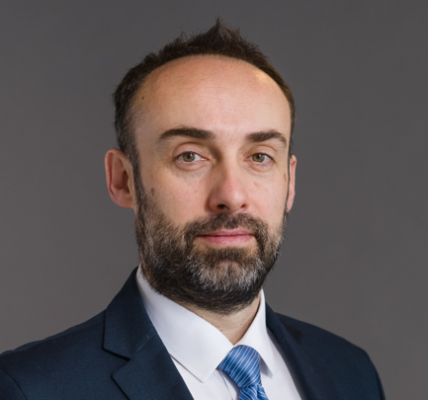
Siniša Marčić
works at the Regional Cooperation Council focusing on the development of a regional innovation ecosystem in the Western Balkans. Alongside research and academic experience in Australia and Europe, he worked on several assignments in the Western Balkans as a research & innovation senior policymaker. PhD in International Politics from the University of New South Wales, Australia.

Snežana Bogićević
works as a mathematics teacher at the elementary school “Jovan Dučić” in New Belgrade. She graduated from the Faculty of Mathematics at the University of Belgrade. She has been working as a primary school teacher for 17 years. She gladly cooperates with colleagues of related and different subjects. She worked as an external associate of ZUOV. She is an evaluator, reviewer and co-author of accredited mathematics textbooks for elementary school, as well as professional papers.
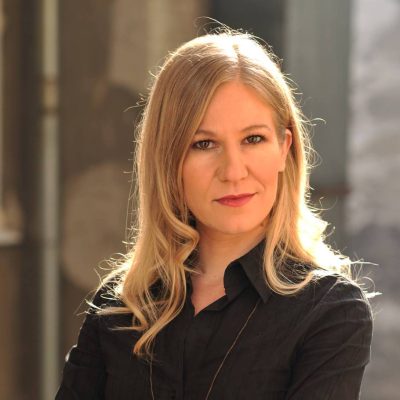
Tamara Nikolić
Ph.D. (Belgrade, Serbia) is Assistant Professor at the Department for Pedagogy and Andragogy at the Faculty of Philosophy, University of Belgrade and a reasearcher at the Institute for Pedagogy and Andragogy. She holds a Ph.D. in Adult Education from the University of Belgrade and M.A. in Human Relations from the University of Nottingham. In 2010 she enrolled in International Class at East Side Institute, based in New York, for training in radically relational, cultural approach to human development, community building and leadership. Being East Side Institute’s Associate ever since, she keeps deepening her interest in the intersections of play and performance, adult learning and community building, which she continues to pursue theoretically and practically. Her recent research involves topics such are leisure education, creative learning environments, drama and theatre in education, and the role of performance and improvisation in educational settings. As an educational professional, she teaches adult education related to leisure, community development, communication and media, play, creativity and drama. As a freelancer, she delivers trainings for trainers, mentors and other professionals in the field of education, designs and facilitates workshops, and engages in supervision and counseling for educators. As a lifelong learner, she recently obtained M.A. in Applied Theatre at Academy of Arts in Novi Sad. She co-authored the publication Let’s Play – a Manual for Drama Process. As a performance activist she advocates for performative approach to life and sees the play and performance as a way of engaging people in the critical issues of the world. At the core of her work as a scholar and educator is creating an environment for people to learn and grow through playful, philosophical, demanding, developmental, mundane and imaginative conversations and practices.
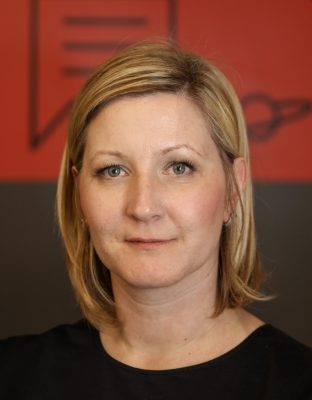
Tanja Adnađević
is a biologist, researcher, and head of the department of program activity at the Center for the Promotion of Science (CPN) in Serbia. She is a senior research associate at the Department of genetic research, IBISS, University of Belgrade. For more than a decade she has been active in science communication projects and non-formal education projects. She’s been involved as a project coordinator or national coordinator in numerous EU projects dealing with science communication, non- formal education, citizen science, and climate actions.
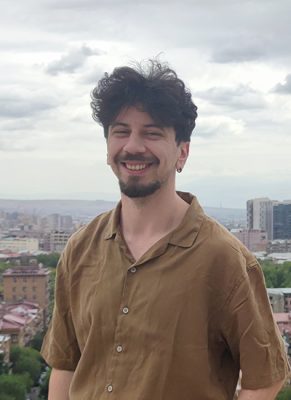
Tibi Puiu
is a science journalist from Bucharest, Romania. He is the co-founder of ZME Science, an international popular science website started in 2007 on a mission to bridge the gap between the latest research and the general public through compelling storytelling. ZME Science is now one of the most recognized dedicated science journalism brands to come out of Europe. Tibi usually writes about physics, renewable energy, space, and the climate, but he’ll dabble in a lot of things, from stories about resurrecting mammoths to the more recent Nordstream sabotage.
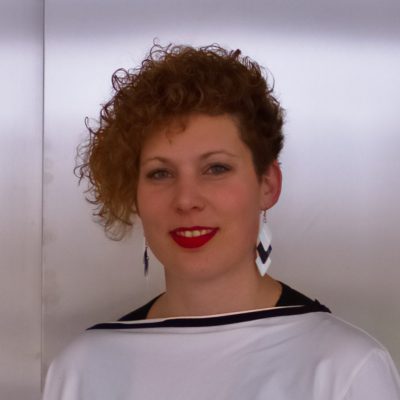
Tina Marković
is the manager of CARNET’s Helpdesk Service. She has many years experience in european project management as well as in activities that aim to popularize the implementation of ICT in education and the integration of innovative methods in learning and teaching. For the past five years, she has been leading the Scientix and “DOTS – Development of transversal skills in STEM” projects, through which science subjects are promoted and aspire to create a community of practicing STEM teachers in EU member states. Tina is a member of the program committee of the Scientific Picnic, in which CARNET has participated since 2015 as co-organizer. In the EU project “e-Schools – Development of a system of digitally mature schools”, she leads activities related to the strengthening of the Community of Practitioners, which include the design and organization of regional meetings and the arrangement and equipping of Regional Education Centers (ROC) in 15 schools. She graduated from the Faculty of Economics in Zagreb, majoring in Business Informatics. Also, she graduated from CARNET’s E-learning academy and obtained a project manager’s license.
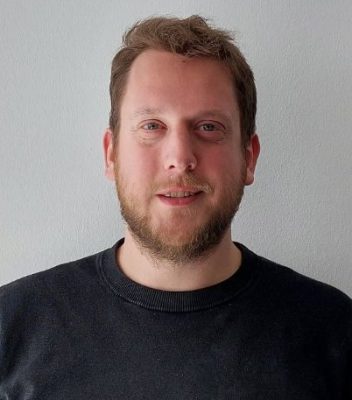
Tomislav Rožić
works at CARNET on information systems used in Croatian education. He is the manager of national online enrollments in secondary schools. In addition, for the last three years he was the project manager of the Erasmus+ project “DOTS – Development of transversal skills in STEM”, which has just ended. His business interests are project management and product ownership, and he is particularly interested in innovative teaching methods in education. He is a Croatian language teacher and linguist by profession. In his free time, he likes to make music and play videogames.
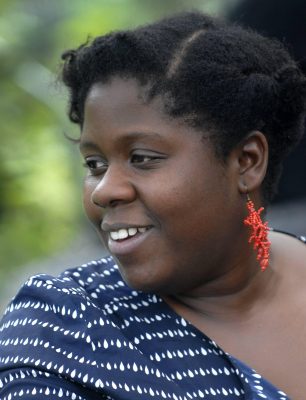
Vanessa Mignan Jenkins
is an independent trainer and social inclusion consultant for science engagement organisations. She uses her cross-cultural expertise to support institutions working outside their comfort zone. Over the past ten years, she has developed, implemented and evaluated educational and training programmes on science engagement, creativity and social justice at both French and European levels. Since 2021, she has been an Honorary Research Associate of the Department of Science & Technology Studies at UCL.
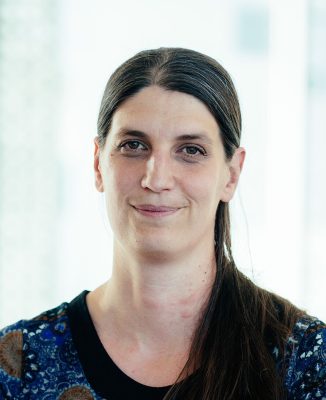
Vedrana Mikulić Crnković
is an associate professor of mathematics at Faculty of Mathematics, University of Rijeka. Her scientific interest is in the field of combinatorics. In addition to scientific and teaching activities, she is very active in science promotion and involved in several projects dealing with teaching of mathematics.
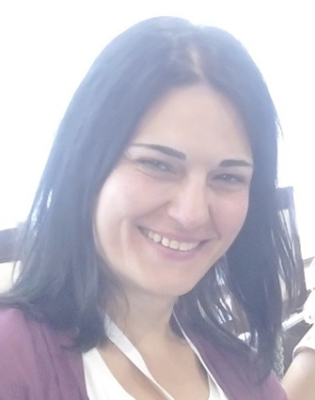
Vesna Kostić
is a history teacher at elementary school “Jovan Dučić” in Belgrade with over 20 years of experience. With her students she participates in international and national projects. She has published several professional and scientific papers in the field of history teaching and pedagogy, for which she has been awarded. As a pedagogical advisor she regularly improves her skills at international and national seminars. She is an external associate of ZUOV.
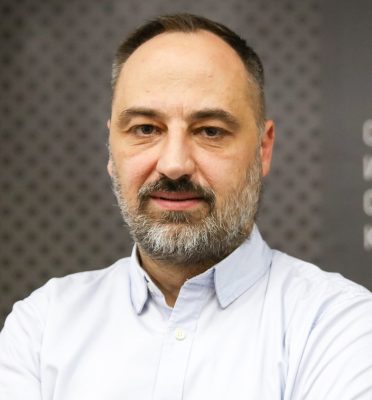
Vladimir Đurđević
is a full professor of meteorology at the Faculty of Physics, University of Belgrade, Serbia. During his career, he was also a visiting scientist at the NOAA (USA) and CMCC (Italy). His expertise is in the field of climate modeling, climate data analysis, climate impacts, vulnerability and adaptation to climate change. Beside his career in education and science he regularly participating in different public events dedicated climate change.
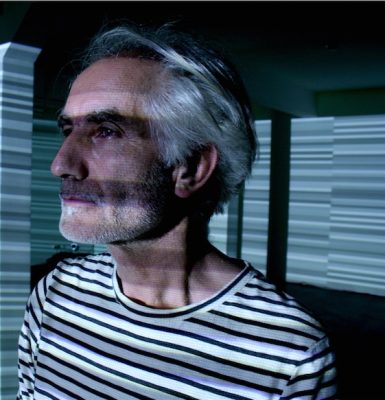
Werner Jauk
Director of Ars Electronica Research Institute „auditory culture“ He did his Phd in psychology (musical cybernetics, information theory and aesthetics), postdoctorial studies at the IRCAM-Paris and his habilitation in pop / music & media / art always focusing on auditory perception and its mediatisations as cultural processes in media cultures. His interdisciplinary scientific research has been published in international journals and congress papers; projects between science and art are part of media art festivals. This interdisciplinary work led to the establishment of the MA-study focus „pop music and media culture“ and to the establishment of a transmedial research institute „auditory culture“ at Ars Electronica.

Zoran Tomić
was born in Kruševac in 1988, where he completed primary and secondary school. In Niš, he completed his undergraduate and master’s studies at the Faculty of Economics, where he is currently a PhD student. He has been promoting science and astronomy since 2005, when he attended an astronomy course at SC Petnica. He became a member of AS Alpha, where he built an astronomical observatory. He founded the AS “Eureka” in 2010, whose president he was until 2020. With the support of CPS he built the AO “Šarengrad” and is active in the field of astronomy promotion. Currently he is MP at the National Assembly of the Republic of Serbia.
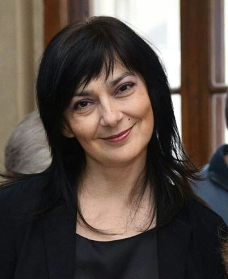
Zorana Matićević
sociology teacher is a senior pedagogical advisor and an external associate of MPNTR and ZUOV with over 25 years of experience in educational work. She was awarded in the country and abroad. She is author of several professional and scientific papers.
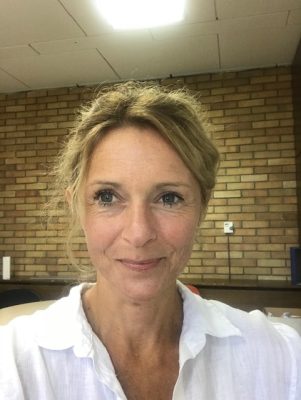
Zrinka Valetić
She started activities in the Institute of Entrepreneurship and Innovation, which is currently responsible for the implementation of the BIOPLAnet project, after several years of work in the Ministry of Environmental Protection and the Ministry of the Sea. The idea of the project is to bring environmental problems closer to the youngest as well as the general population. Circular economy and alternative solutions in terms of waste with a focus on plastic, bioplastics and their advantages and disadvantages, natural resources and the reduction of reserves, are part of the area covered by the project, and thus by the Institute.
Сесије
November 24
Auditorium
OpenSciComm keynotes
10:30-12:00
Following a brief outline of key tenets of science communication, this presentation looks at the distinction between the nature of ‘scientific knowledge’ and the nature ‘scientific inquiry’ as a site from which to further ‘open’ science, technology and medicine (STM). I suggest that communicating about science – in addition to communicating science itself – yields long-term dividends in managing public expectations and trust in STM by providing a necessary understanding of the conditions under which scientific claims earn credibility in the public sphere. Understanding these conditions is especially important in facilitating public opinion about matters involving controversy, uncertainty and risk.
Open Science in the open world
13:30-14:30
Open Science is based on the principle of openness and transparency in the whole research cycle. It fosters and reinforces core academic values, such as research integrity, cooperation and knowledge sharing, while making scientific research and its dissemination accessible to all levels of society, amateur or professional. Open Science is also key to increasing public trust in science and as a means to spark interest and foster the public’s participation in research activities. Invited speakers will showcase a variety of initiatives, knowledge and practices – from pioneering “Science Shop” model invented in eighties, through nationally valuable “Open Science Platform” and first faculty textbook based on the OS principles, to the integration of research results into regional innovation and policy agendas.
SciJournalism: Bridging the Gap Between Science and People
14:45-15:45
The COVID era has made it crystal clear that the world needs a much better bond between scientific content and the general audience. (Remember the vaccines and Ivermectin saga?)
Adequately communicating science so that everyone understands involves time and effort, especially if you are a ‘regular’ journalist. Science is usually communicated via ‘usual suspect’ mediums: TV, online and print. This panel will show how scientific content can also be distributed using one ‘old new’ medium – radio. In addition, we will showcase examples of a rather unusual but happy marriage between science and the PR sector, as a suitable way of building visibility of scientific content.
What’s The DRAMA With Science Communication
16:45-17:45
Main aim of this panel is to encourage STEM teachers, science communicators, researchers and artists to collaborate and to explore drama as a field of communicating science. Hopefully, this session will spark a dialogue about including methodologies from drama and theater into science communication and inspire evolvement of science and drama communities. Panel will raise questions such as where is storytelling positioned between science communication and drama, which are intersections of methodologies in scientific and drama research, what kind of participation in drama and science projects elevate what kind of processes, how to reflect and evaluate drama and science programs, how to position this field as participatory and critical contribution to the science communication…
November 24
1st floor room
In Science We Trust
13:30-14:30
Art and Science: beyond communication
14:45-15:45
The relationship between art and science is based on exchanging ideas and scientific knowledge. The speakers in this session will go beyond communication to demonstrate how scientists and artists use different artistic media, methods, and living systems to explore our relationship with nature. In addition, we will have the opportunity to see how various disciplines interact and the importance of dedicated space for artists and scientists to collaborate, work and innovate.
Presentation of theories of seeing and hearing and their cultural implications, as well as the projects of epistemological media art, will lead to a discussion about sociopolitical, aesthetic, and ethical aspects of alternative concepts of science and art / epistemological media art.
Exercise of research through creating taxonomic media structures will open questions about the symbolic functions of sound and the politics of its processing.
Open Science: Unlock your Research for multilayered audiences and resources
16:45-17:45
November 24
Pop Up Science Club
Origami-mathematics, wonders between the folds in the classroom
13:30-14:30
We present origami activities for mathematics learning. Origami is often considered as a Japanese paper folding technique, but since the end of the 20th century, it has become a dedicated discipline mathematics through the establishment of origami axioms, also known as Huzita-Hatori origami axioms. The mathematization of origami led to proving traditionally unsolved problems such as doubling the cube or trisection of an angle. Furthermore, other uses, for instance, it is used by NASA in its space research and in developing technologies. With such developments, origami is becoming even more suitable for classroom activities to teach mathematics. Through such activities, students can be engaged with both visually beautiful and scientifically rigorous tasks and learning. We will give examples of hidden mathematics and science opened up by origami for young learners.
Secret of Masonic communication and more
13:30-14:30
Cryptography as an interdisciplinary science combines social and natural sciences into a common whole. Through the combination of history, linguistics, language on the one hand and mathematics, mechanics and informatics on the other, students learn how to use different codes, i.e. to encrypt, but also how to break codes. This endless game between cryptographers (code makers) and cryptanalysts (code breakers) is as old as human writing and will continue as long as humans communicate information to each other.
DataArt IT Museum
14:45-15:45
DataArt IT Museum started 5 years ago as a humble collection of computer relics and developed into a deep study of Eastern European IT history, preserving not only artefacts but mostly stories of those who built the industry from the early 1950s and until the fall of the USSR and Eastern Bloc. DataArt is a global software engineering firm founded by people from the Eastern Europe. Our approach to solving clients’ problems is deeply rooted in Eastern European engineering tradition and its history is our own history. But apart from humanitarian approach, DataArt turns the museum into a powerful communication storytelling platform and is building marketing instruments upon this platform. In my talk I will share what we have found during our research, what stories have we uncovered, how we use our research as a communications tool which benefits the company and popularizes Eastern European IT history.
Climateria
15:45-16:45
In this workshop, you will enter a giant bacterium in the digital space to discover the impact of climate change through the evolution of microorganisms. The workshop was first displayed as a part of Science Gallery Dublin’s annual Youth Symposium event – HOT AND BOTHERED. This program brings together young people across the globe to connect, exchange ideas and share knowledge to foster action for climate justice.
November 24
Workshops
Teaching SciComm: Lessons from the Field
12:30-14:30
A flourishing national community of science communicators and journalists has to rely on infrastructure for professional development. Yet university instructors working with science communication and science journalism in languages other than English often face a dearth of resources and have to design and implement their programs ‘from scratch’, essentially shaping the nascent market for scicomm professionals. The two presenters at this workshop have been working with Russia’s first Master’s Program in Science Communication at ITMO University since its start in 2016. Alexandra was its academic supervisor until this year while Olga is in charge of the core two-semester course on multimedia science journalism. They also co-authored the first MOOC in science communication, which ran successfully over more than 10 iterations, and led AKSON, the national association for science communication, as consecutive presidents. During the workshop, Olga and Alexandra will reflect on the lessons learned in the last six years and present a blueprint for designing a scicomm curriculum fit for the goals and needs of national science communicators and journalists.
TV camera – fight or flight?
14:45-16:30
Science communicators struggle to expand their reach and show that their arguments are important and deserve media attention, especially in times of COVID-19 pandemics, climate crises, and energy issues. Although many science communicators have found a way to deal with stage fright during lectures and other in-person events, many struggle when there is a camera involved. The ‘’fight or flight response’’ is an automatic physiological reaction that prepares the body to deal with fear. Test yourself, overcome your fear and have fun with us (and our TV camera). In this 90-minute workshop, we will focus on a TV appearance. For this purpose, we will simulate a TV interview and put the tips and tricks learned into practice, by working in a group format (5 – 6 participants per group, 25-30 total) on a real participant topic/project. Petra is a trained senior media and communications specialist with 13 years of experience in internal and external communications, reputation management, social media, and media relations. Marko is a biochemist with broad science communication experience including 9 years on Croatian national TV and a few years in political communication.
Scientific findings in the non-scientific public and vice versa:
the scientists’ responsibility
16:45-18:45
Who is to blame for the presence of quasiscientific and false information about scientific facts? While this phenomenon certainly is multilayered, in the workshop we will approach it from the perspective of the scientists’ role within networks of trust, and networks of knowledge. It may be argued (and sometimes is) that the main responsibility for the prevalent misuse of scientific knowledge lies within the scientific community and researchers. Literature lists many scientists’ social-epistemological fouls, among others: epistemological arrogance, epistemological trespassing, passivity, feeling of helplessness and blaming the media (so-called scapegoating), ignoring, and lack of support by the academic system for the social role of science. We will tackle all of these, and together structure a framework for overcoming problems by strengthening and motivating researchers to claim their responsibility and power based on knowledge and expertise. We will analyse four aspects of the process of communication of science in public: a) structure of misinformation (so-called hot-topics, eg. evolution, flat-earth, vaccination…), b) structure of complementary scientific fact, c) how to present the fact when it goes out from the laboratory, and d) at which point in time to intervene. We will use real-life examples provided by the participants of the workshop, and conclude the work with practical guidelines based on literature for communicating scientific work with the public (from lay-people to lay-people who are decision-makers in society).
November 25
Auditorium
OpenSciComm keynotes
10:00-11:30
STEM + the Arts: Critical Friends or Star-Crossed Lovers?
Mairéad will share findings from international research into the learning pathways of youth who have participated in a variety of transdisciplinary learning programmes that combine STEM and the arts outside of school settings. She will also discuss the learnings from the European Commission-funded SySTEM 2020 project, and the implications for future educational initiatives that cross the boundaries between the STEAM disciplines and between settings to promote science learning as a lifelong, collective, creative endeavour.
Ciência Viva: an experience of science engagement through knowledge networks
Ciência Viva is a nationwide non-profit association that nurtures a social movement for science and scientific culture involving hundreds of thousands of researchers and citizens, students and teachers, young people and adults. Created 26 years ago as a government programme dedicated to the promotion of education and scientific culture, in 1998 it became Ciência Viva – National Agency for Scientific and Technological Culture and started expanding by creating networks to promote citizens´ engagement with science, namely a national network of Ciência Viva Centres.
New Opportunities for Adressing
Societal Needs with Citizen Science
11:45-12:45
Citizen science (CS) has the potential to play a broader role in societal and scientific communities, especially in areas of research that directly impact challenges which the modern world is facing, such as energy poverty, public health, and environmental monitoring. This panel offers information about upcoming CS opportunities with the IMPETUS project, that aims to open the door for new stakeholders to develop innovative CS projects. It will also share experiences from current CS initiatives underway as part of the STEP CHANGE project -focusing on environment, health, and energy- and a CS initiative from Albania, where citizen scientists work to assess ecosystem services. Furthermore, the panel will shed a light on how CS can be used for purposes of science communication, with inputs from NEWSERA’s #CitSciComm Labs. The panel ends with an invitation to the audience to experiment with CS as well as providing suggestions for the next steps for CS and the use of the EU-citizen.science platform.
Climate literacy for sustainable future community development
13:45-14:45
This session will focus on how the massive amount of scientific data related to climate change, that have been collected continually for decades, could help stakeholders better understand the urgency to act. What are climate services, how should climate data be presented and what are the potentials of low-cost gas sensors to measure methane emissions from a range of sources, will be some of the hot topics elaborated at this session.
Living labs and open schooling in
science education
15:00-16:00
Necessary changes in education could be boosted by informal science education organizations working along with enthusiastic school agents willing to transform their schools into open places. Within the EU-funded project Schools As Living Labs (SALL), societal actors across Europe adapted the living lab methodology to the school context. SALL introduces a way of systemic thinking to solve real-life issues through a cycle that involves prototyping and continuous assessment. It encourages strong connections with the local community and aims at transforming participants into active change makers. In this panel, we will look at how this methodology has impacted different institutions and people in terms of learning, motivation, leadership strategies, tangible local impact, or community feeling.
November 25
1st floor room
A kaleidoscope of STEAM practices across Europe
11:45-12:45
Inspirational approaches to STEAM education
13:45-14:45
Citizen Science: guidelines, quality assessment strategies and expoitation pathways
15:00-16:00
November 25
Pop Up Science Club
Magic and Games: Periodic Table, Quantum, Entropy, Women and Science…
11:45-12:45
Year 2019 was dedicated all over the world to the Periodic Table of the Elements. There was a wealth of physical and online activities to disseminate and communicate chemistry and indeed the very Table. Our group, composed of mainly chemistry-related people, was inspired by the spirit of such Internacional Year and collected a weekly game on the Periodic Table. Some games were invented, others adapted from classical games, and others were just acknowledged and reviewed. Unfortunately the Covid-19 pandemic has restricted diffusion of our games somewhat, in such a way that online versions have been those most viewed. However, in the few Fairs and onsite activities helds during these last two years, we have built some physical games involving the Table, among those (actually 54) games in the website collecting them. This booth will depict and make available for playful activities some of the games. In general, they involve just one person, even though they will appeal to groups of people as well. Despite the Table being taught late in the school years, many games can be played by young children – actually they love them, e.g. „The longest train“.
Early Childhood Environmental Education
11:45-12:45
This research examines the concept of developing environmental awareness in preschool-aged children. This research aimed to discover if it is possible and to what extent to develop environmental awareness and language of very young learners by using Theme-based Instruction outdoors. (Theme-based Instruction includes learning a foreign language through a theme.) Moreover, the specific aim of this research was to determine if outdoor learning, science experiments, and exploring environmental problems have any impact on the development of environmental awareness and the development of communicative language use. Also, the study analyzed whether the potential environmental awareness can be transferred to other aspects of the participants’ lives outside of the educational institution. This workshop has the purpose of sharing the results very quickly, and then focusing on the activities used in this outdoor program to motivate present listeners to engage in activities in children outdoors and show them how these activities can be used to teach English to children in their own environments, even if they are not teachers. The workshop will be practical, and it will include activity making in groups by following the design framework from the research and a discussion.
Science around us
13:45-14:45
Although The Science club Leskovac is quite young, we can proudly say that we, continuously and devotedly, fulfill our purpose in the field of promoting and decentralizing science. We have successfully organized over 250 activities during the last six years. At this conference, we are honored to present only a part of our work completed in collaboration with our associates. Two small projects stood out: ’Physics fairytale’ and ‘Timeless people’. So, visitors will have a chance to conduct some experiments with water and to be architects for a day, trying to build a famous da Vinci’s bridge without using screws or glue. If you would like to know more about our work, you can get detailed information on the second day of the conference and on our FB and Instagram profiles (@csuleskovac).
Do plants and animals know physics?
13:45-14:45
Nature, the living world and physics constantly cooperate, so it is useful to present a multidisciplinary approach between biology and physics. Through demonstration experiments, we can provide answers to the question of whether plants and animals know physics and thus enrich the material taught at school with interesting facts. Examples of some topics and experiments are: demonstration of how a bat hears – using an arduino programmable card and a UV sensor, demonstration of capillary phenomena that are the basis of the transport of water and minerals from the roots to higher parts of the plant, electric eel – making a simple circuit and masking the source as the eel . Also, one of the effective ways of imparting knowledge are flashcards, through which students learn what is planned in the program, but in a completely different way.
3D printing students’ company logo
15:00-16:00
Project teaching is an Education Strategy 2020 model which provides subject but also cross-subject competencies development. It includes peer education, learning labs, cooperation with business entities, learning practice, students as collaborators in teaching, creating a „learning community“ as well as the STEAM approach. Participants were ICT, Art, Citizenship, and Sociology teachers, students and External support: „POLYHEDRA“ – a company which deals with 3D printing. This project is tailored to meet a goal: introducing the program for designing and mastering the skill of 3D printing by encouraging student initiative, creating the student’s company logo in both, analogue and digital versions, choosing the best art design and its production.
Meet Scientix Ambassadors!
16:00-17:00
November 25
Workshops
Transversal skills in STEAM education
11:45-13:30
In this workshop, the CARNET team will demonstrate innovative teaching practices which were developed through various educational projects. The main goal of the workshop is to inspire STEAM teachers to improve their teaching practices with a special emphasis on transversal skills. Transversal skills are various skills that are constantly being taught throughout education, but mostly they aren’t the subject of teaching. I. e. skills regarding teamwork, communication, organization, critical thinking, or global citizenship. The workshop will showcase a few activities which will tackle specific concepts that are being taught in Croatian schools, but with the aforementioned emphasis on transversality. The teachers will in this regard be the students, and by taking part in this workshop they will remind themselves of what the teaching process exactly means for their students. The workshop will try to exaggerate the importance of fun in the teaching-learning process, and by using cheap and available tools, will try to invite all of the teachers to test out some of the methods being displayed in their own classrooms. Additionally, the participants will be demonstrated several other ready-to-use educational materials containing similar methods which were developed through different educational projects. The ideal candidate for this workshop is a teacher of any school subject who wants to improve their teaching skills and find out something innovative in the world of modern education. The workshop will last 90 minutes with both theory and practice.
STEM F.D.: Fighting wildfires with STEM education
13:45-15:30
Wildfires are commonly thought to be inherently destructive, but the Mediterranean ecosystems present a series of fire-adaptation mechanisms that result in a natural regeneration process. The degradation of the ecosystems is due to the increasing frequency and intensity of wildfires, which are primarily the result of anthropogenic activity followed by climate change over the last few decades. While efforts focus on fire fighting, an approach that requires massive resources, prevention measures, and early warning methods are recognised as sustainable solutions that minimize the effects of wildfires. In the capacity-building workshop “STEM F.D.”, participants will apply STEM principles to the real-world problem of early warning for wildfires by using remote sensing and physical computing tools. Participants, working in teams, will first utilise remote sensing to examine a burned area, and then employ a microcontroller and sensors to build a simple physical computing application that simulates an early warning system in the event of a fire.
Detective Investigation
15:45-17:15
Modern teaching implies that students acquire functional knowledge, improve their competencies and develop various skills necessary for their professional development. One of the most important STE(A)M skills of the future is problem-solving. Based on these requirements, the teachers designed a workshop in which students connected the material of Science and Humanities as well as their extracurricular experience by solving tasks. The aim of the workshop was to improve the students` scientific literacy through the discovery of a mysterious person, as well as to develop their critical attitude towards the content available on the Internet. Each teacher connected the life and work of Jovan Dučić with the material of his subject and created two tasks of different complexity levels accordingly. The tasks were formulated in various ways (associations, tasks with a coordinate system, riddles…), and at the workshop, they were presented as short films, with instructions on how to solve them. Solving the tasks posed in the first film led to a higher level of „Detective Investigation“ quests, with a new round of questions posed in the second short movie. The third level involved correctly inserting the discoveries into the biography of the mysterious person. Students created and adopted new knowledge by connecting content from several subjects. The results of the evaluation showed that the students reacted positively to the work and cooperation in the group, they saw the importance of choosing verified data with purposeful use of ICT. However, this way of working with students is not often applied, because the lesson plans are not always harmonized. This way of working is still possible, although it requires more detailed preparation of teachers, and the benefit is mutual and multiple for both students and teachers. This concept of a research workshop can be applied to different categories of society in order to promote scientific literacy. During the workshop, this process will be played out by the participants. The workshop facilitators will set tasks for the participants in the form of short films via a computer connected to a video beam. Facilitators interact with participants directly and through Google Classroom. The answer to each question requires internet research and problem-solving. Participants go through 3 rounds of tasks, ordered by difficulty. The questions are from the field of natural and social sciences (mathematics, chemistry, Serbian language and literature, and history). After each round of questions, the presenters provide feedback on the accuracy of the solved tasks. The enigmatic concept is revealed by arriving at the final solution.
Poster Session
November 24 – 15:45-16:45 & November 25 – 16:00-17:00
Unleashing the potential of newsable stories from citizen science initiatives derived open data
Citizen science (CS) is revealing the unrealized potential of citizens’ contributions into research. Citizens can become important data generators and the prime source of information covering broader or hyperlocal topics. This knowledge can be enhanced and empowered by using tools and practices typical of data journalism. The NEWSERA project paired CS initiatives and journalists in order to unleash the potential of newsable stories from open data. Hereby, we share strategies that can serve as guidance for the scicomm community, such as understanding the news production process, defining target audiences and channels, overcoming biases on data collection, exploring new formats, among others.
Co-designing citizen science communication strategies to engage quadruple helix stakeholders – the NEWSERA CitSciComm Labs
The NEWSERA H2020 funded project aims to demonstrate that citizen science (CS) is the new paradigm of science communication, by showing CS as an inclusive, broad and powerful scicomm mechanism. For this, NEWSERA established the #CitSciComm Labs where 38 CS initiatives were involved in communities of practice to co-design, implement and validate CS communication strategies addressed to engage quadruple helix stakeholders (academics, citizens, policy makers and industry). Concomitantly, NEWSERA analyzed and iteratively evaluated the strategies and their impact on each stakeholder, with co-designed ad hoc indicators. Hereby, we show the potential of this multi-step participatory methodological approach and a series of recommendations to empower other CS initiatives, as well as other science related projects.
Multidisciplinary approach to science communication
Nowadays, scientific communication is essential for conducting quality scientific research. Therefore, connections between various scientific groups from various research fields are significant. Therefore, as scientists from three different research areas, we established fruitful collaboration within our research groups at the University of Novi Sad. Connecting field research, experimental work, and computational studies, we gathered numerous people to work and communicate together. This resulted in plant treatment with suggested biostimulants from the point of environmental protection and molecular modeling. Within this multidisciplinarity research, we plan to create a toll for motivating and involving the public in the process of scientific research.
Strengthening Climate – health literacy through education
Climate and health literacy could be defined as the degree to which an individual understands the complex relationship between climate change and human and planetary health. Climate health–literate individuals can recognize direct and indirect linkages between climate change and health, communicate risks, assess data, comprehend uncertainty, make informed and responsible personal decisions, and advocate for broader policies that protect health. The public health and healthcare workforce plays a vital role in environmental health and climate protection, as climate change creates specific health risks and consequences. Organisations such as EUPHA (European Public Health Association) and ASPHER have been advocating for climate health education and training very actively and enthusiastically advocate for Climate and Health Competencies for Public Health Professionals in Europe.
Science in and for Diplomacy: Harnessing Scientific Thinking and Communication to Improve International Relations and Collaboration
The concept of science diplomacy has gained remarkable ground and emphasis in both academic and public policy discourse over the past decade. This presentation examines the manner in which the intertwined mechanisms of cultural and science diplomacy operate in the European context. By viewing different scales of science in and for diplomacy, we highlight the strategic and policy making framework in order to raise awareness among relevant stakeholders about the importance of science as a vehicle for improving international relations and fostering scientific collaborations. Lastly, we focus our attention on prospects and challenges for science diplomacy of Serbia.
The Distinctive Characteristics of Bullshit and their Contribution to the Author’s Reliability Effect
The pseudo-profound bullshit pertains to seemingly impressive statements containing buzzwords and correct grammatical and syntactic structure, implying a sense that they lack. We conducted two studies to test if the intention to impress and meaninglessness are distinctive characteristics of bullshit, if these characteristics influence the proneness to evaluate bullshit as profound and in what way, and finally, to investigate changes in those evaluations due to variable reliability of an added source. Results show that bullshit, indeed, is perceived as relatively meaningless and made intending to impress. For a statement to be perceived as something profound, it is sufficient for it to be made to impress but only preferable for it to be meaningful – participants found bullshit and motivational quotations most profound. When evaluating profoundness, the information about the source is more important than the (lack of) meaning of the produced content.
Environmental Science (Visual) Puns for Better Learning Outcome: Entrance Exam Book Illustration
Preparation and learning for the faculty entrance exam is one of the stressful periods for young scholars. With the aim to ease the burden and improve literature understanding, “A Collection of Tasks for the Environmental Protection Entrance Exam” book was illustrated (publisher: Faculty of Sciences, University of Novi Sad, Serbia). Visual communication of important terms and definitions, influence the perception of younger generations in a humorous way that at the end enables efficient learning outcome. The core design of these text add-on visuals are drawings of the Planet Earth and its mediums (water, soil, air, waste, etc.) in various situations. The authors have conducted the survey to evaluate overall satisfaction and understanding of presented visuals.
ENgagement and JOurnalism Innovation for Outstanding Open Science Communication
The ENJOI (ENgagement and JOurnalism Innovation for Outstanding Open Science Communication) H2020-funded project is exploring and testing engagement as a key asset of innovation in science communication distributed via media platforms, with a strong focus on journalism. Through a combination of methodologies and in collaboration with producers, target users, and stakeholders of science communication, ENJOI is co-creating and selecting a set of standards, principles, and indicators (SPIs) that will be condensed to a Manifesto for Outstanding Open Science Communication.
Партнери

